Sun rises on new LMDh era at 2023 Daytona 24 Hours
The 2023 IMSA championship roared into life with the Daytona 24 Hours – and Gary Watkins was present in the Florida sunshine to witness the start of a new era for sports car racing
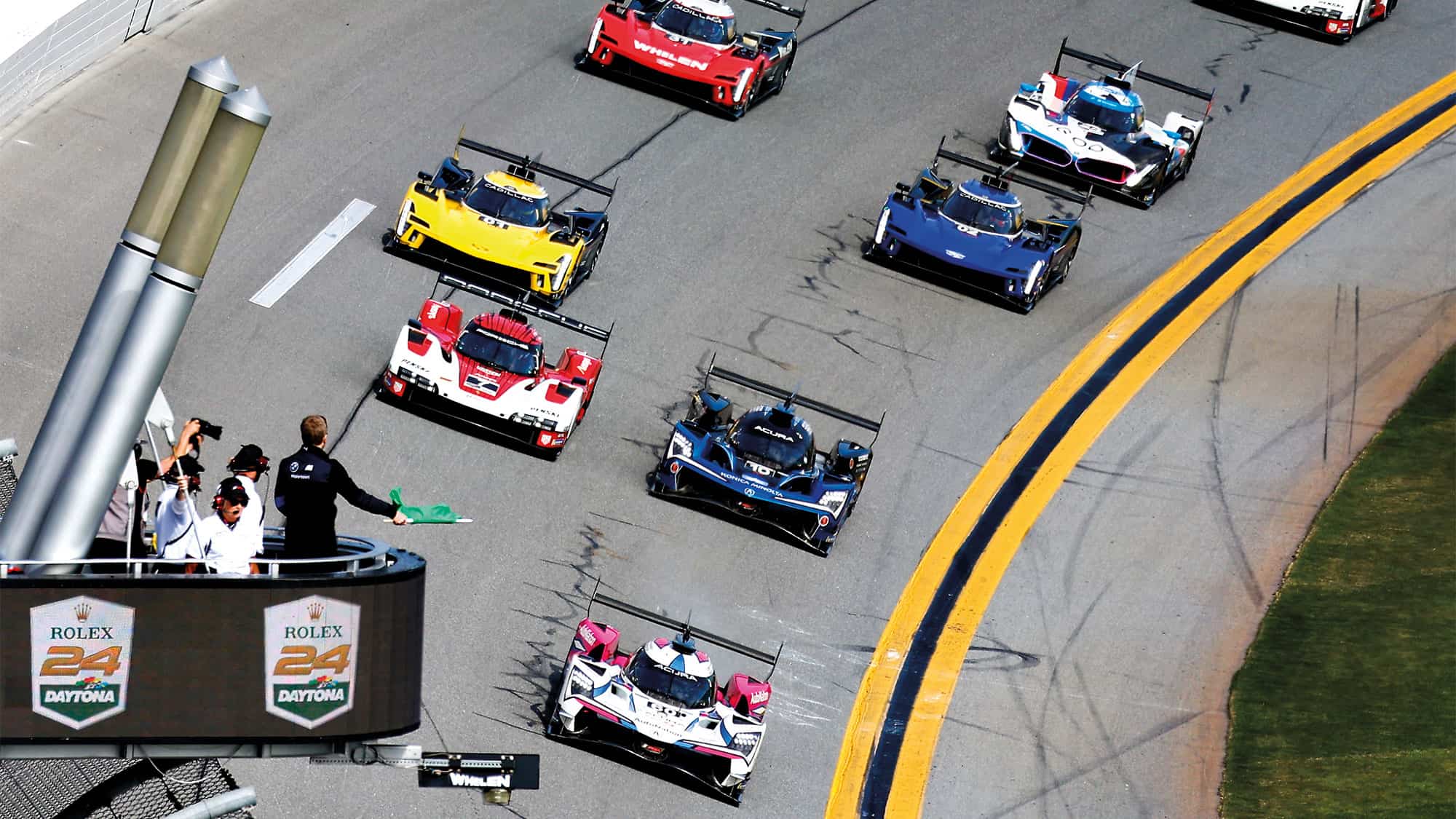
Getty Imags
There were just 26min left on the clock, the green flag dropped and the four cars on the lead lap raced to the finish. Just 11sec separated them at the chequered flag. This could have been any other Daytona 24 Hours of the past 15 years or so; it probably looked like business as usual to the casual fan unaware of the seismic shifts in sports car racing. Yet it might just have been the most important running of the Florida enduro ever.
This year’s edition of the traditional opener to the North American sports car season on the last weekend of January was the first race for the new breed of LMDh hybrid prototypes. That’s where the significance lies, because these cars will race in the US in the IMSA SportsCar Championship and in the World Endurance Championship, which of course means the Le Mans 24 Hours. LMDh and the Le Mans Hypercar category already in place in the WEC are, combined, propelling endurance racing into a new golden age. The typical Daytona-style show the LMDhs put on in the closing stages of the race provided proof of concept.
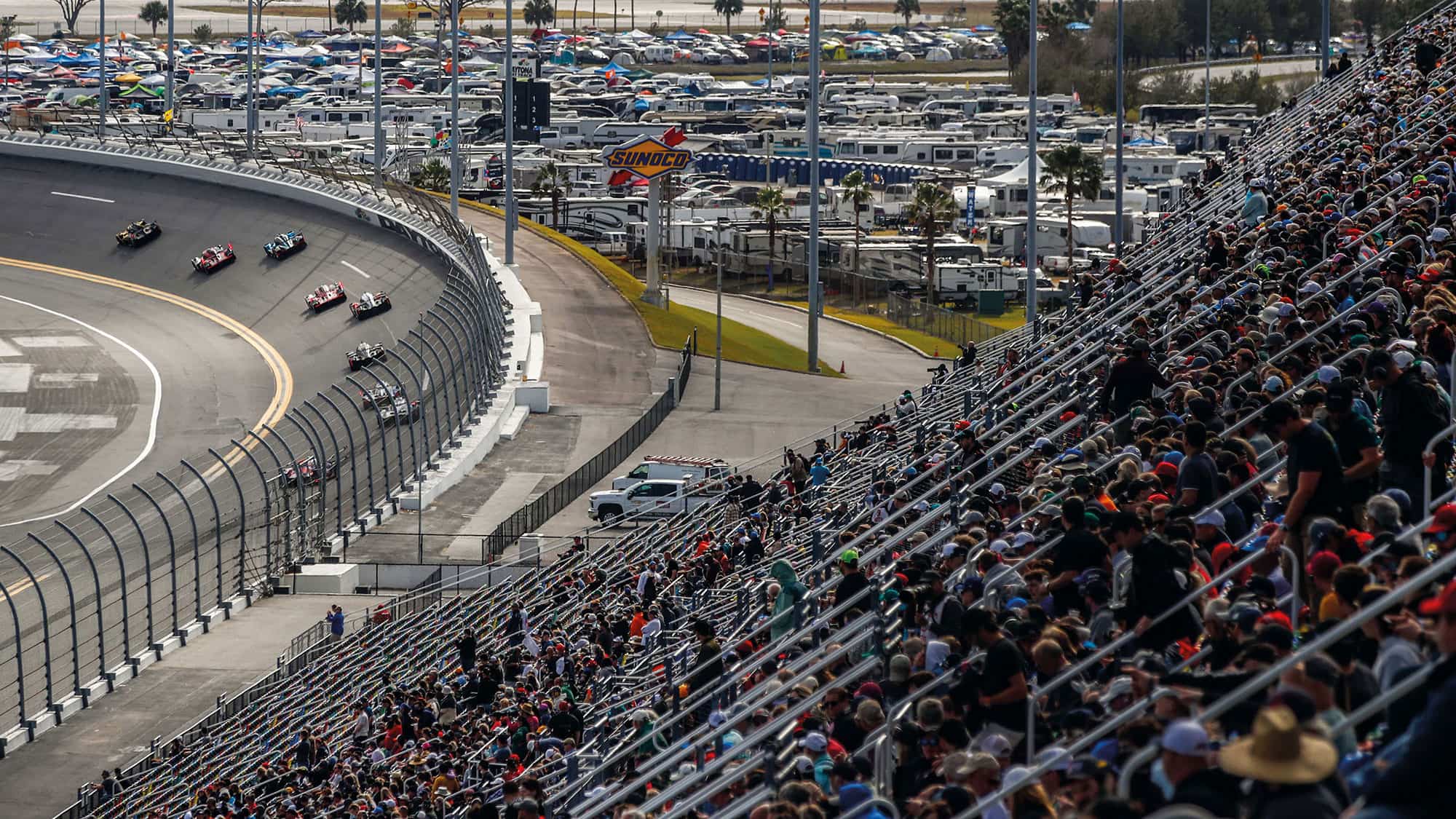
At 1.40pm EST the Daytona 24 Hours started, and with it an historic era for sports car racing had begun.
Porsche/JÜrgen Tap
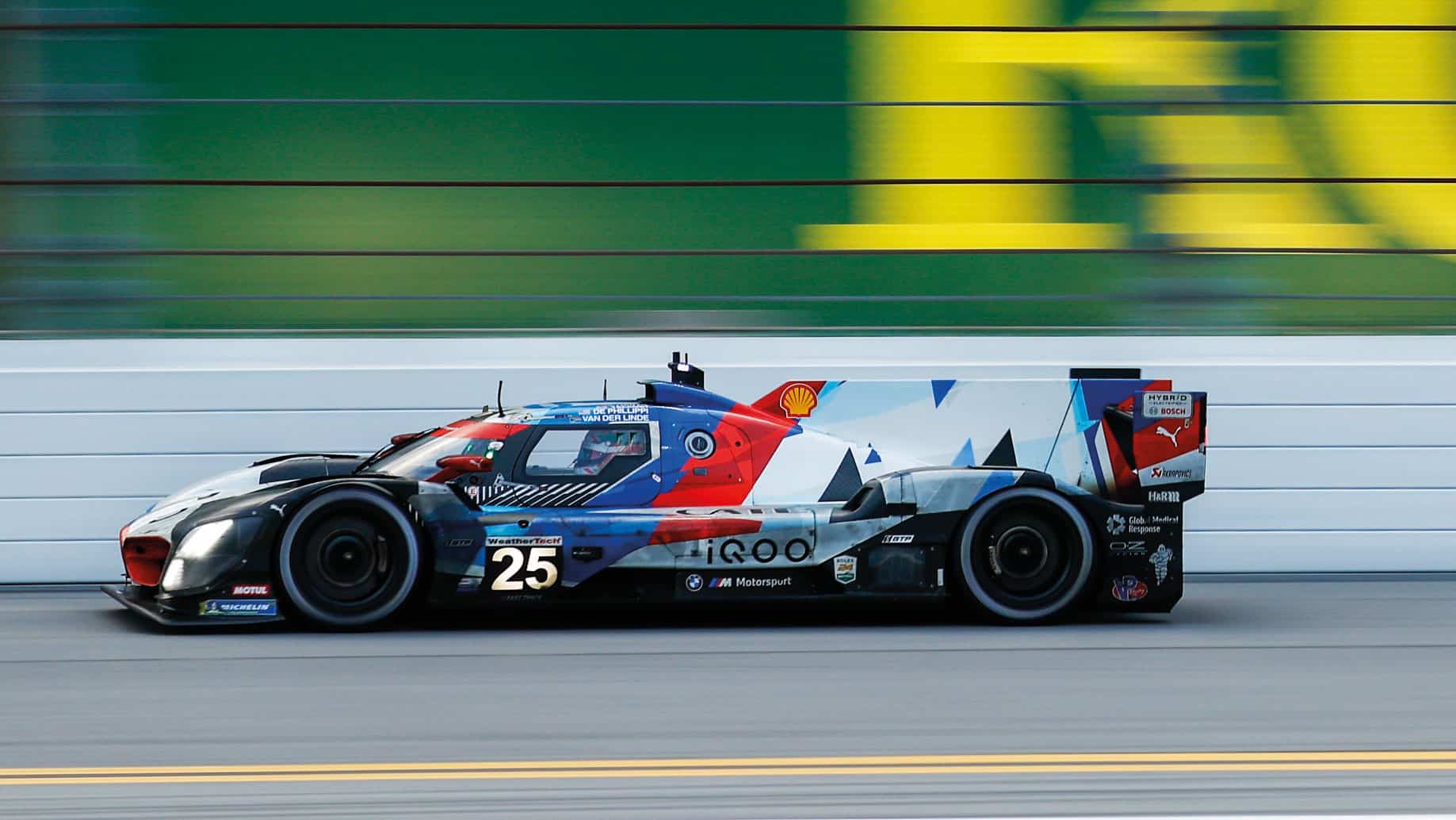
RLL is running the BMW effort with considerable backing
Getty Images
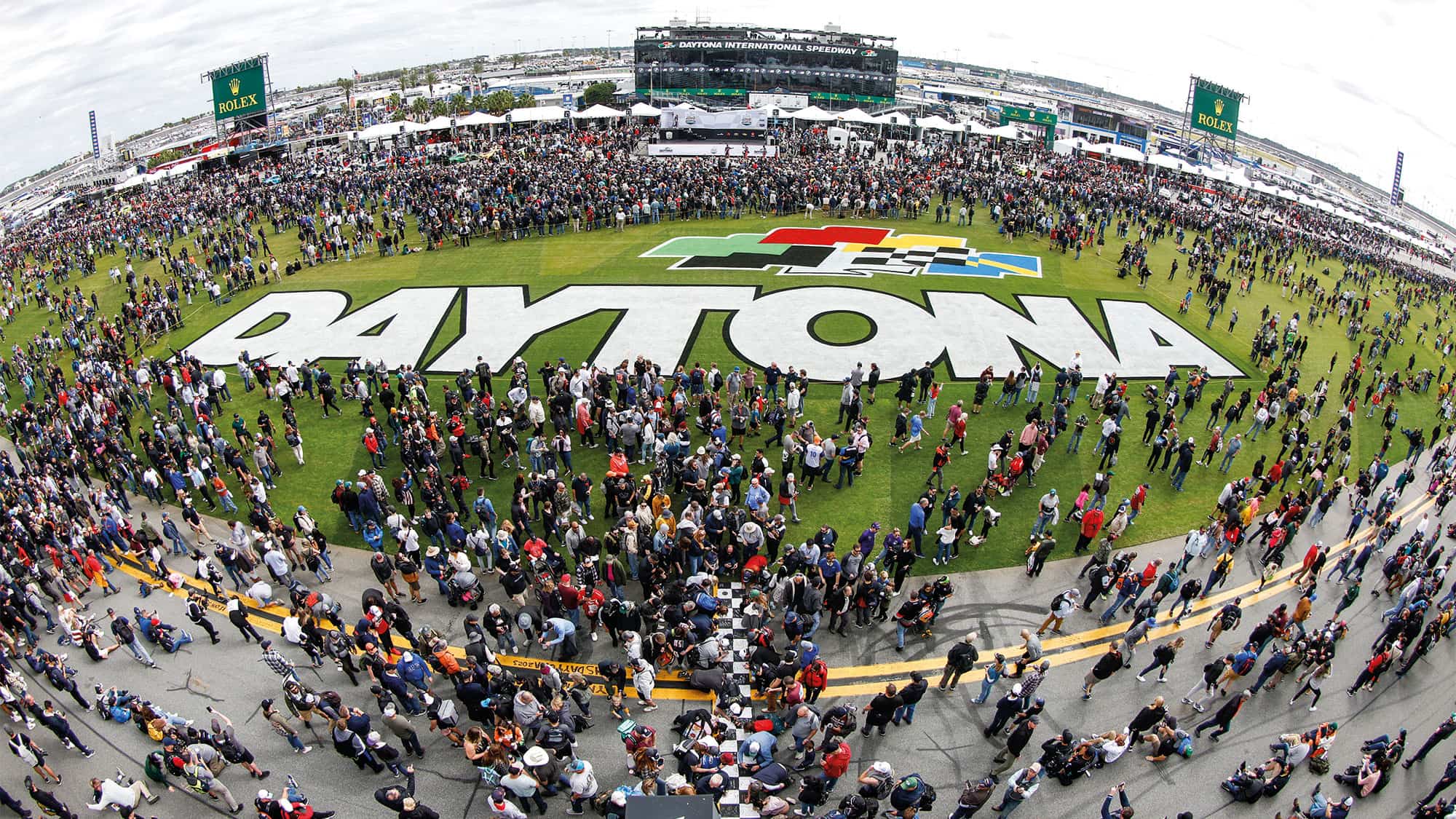
A record 50,000 were in attendance to see the 61-car grid.
Porsche/JÜrgen Tap
Concerns that there would be problems across the board for these brand new and highly complex cars, particularly with the off-the-shelf hybrid system in the back of each of the nine LMDhs on the grid, proved ill-founded. Pre-race whispers that an entry from the secondary LMP2 prototype class might be able to pick up the pieces and pinch an overall victory didn’t grow any louder as the event progressed. They had been well and truly silenced as the race drew to a close through a quick-fire sequence of safety cars that set up the de rigueur Daytona dash in the final hour.
“It probably looked like business as usual to the casual fan”
Two of the four manufacturers present at the birth of the LMDh category got their machinery to the chequered flag without issues with the energy-retrieval system produced by Bosch, Williams Advanced Engineering and Xtrac. (They respectively provide the motor generator unit, the battery and the gearbox.) Acura and Cadillac provided the quartet of cars that raced after the final yellow-flag period. To say the Honda brand’s ARX-06 design that filled out the top two positions and the chasing Caddy V-LMDh ran faultlessly isn’t quite true, but these two marques, between them, provided cars that could still race hard and fast when it mattered at the end.
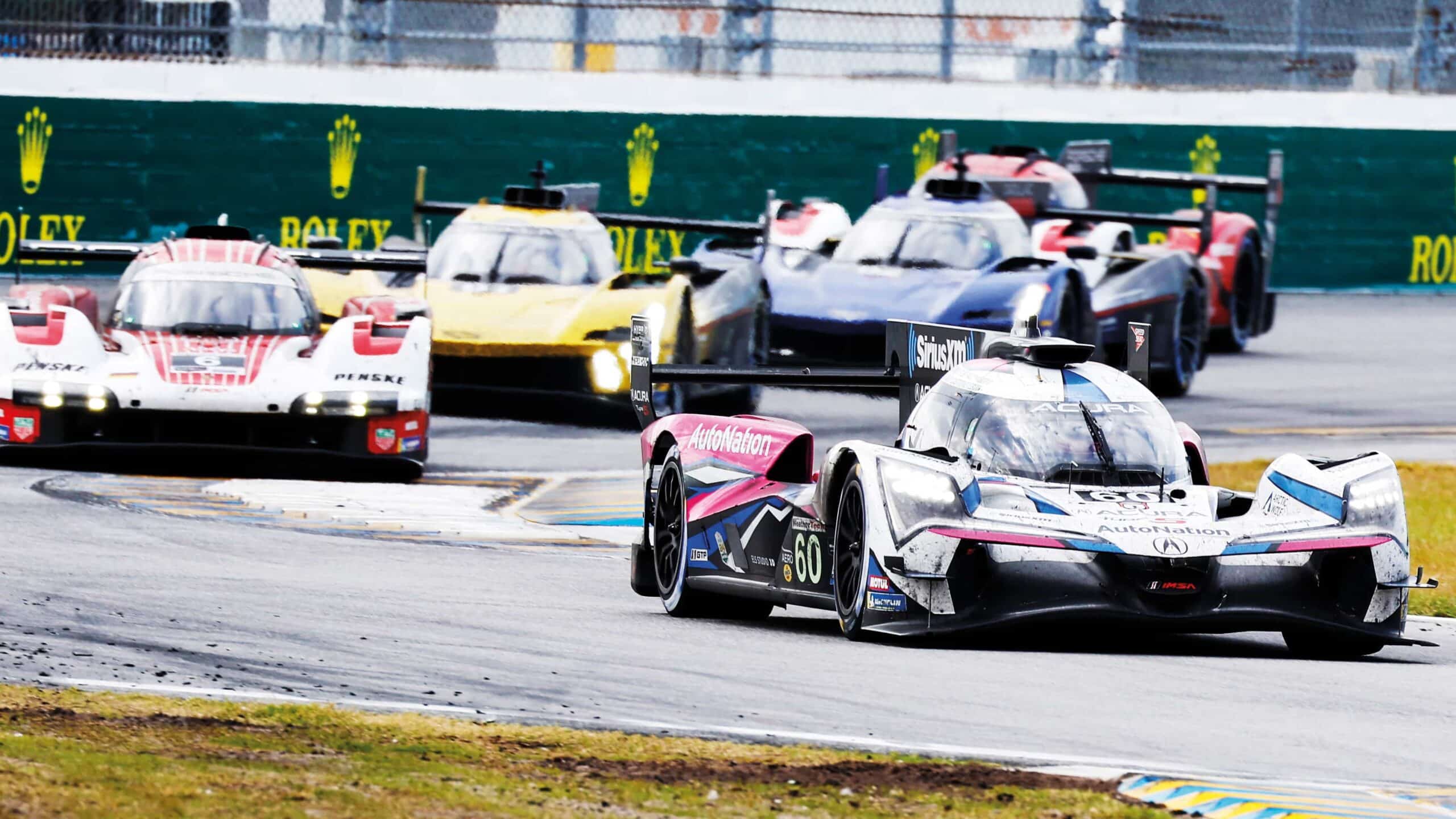
The Acura ARX-06 driven by Tom Blomqvist took an early lead.
Getty Images
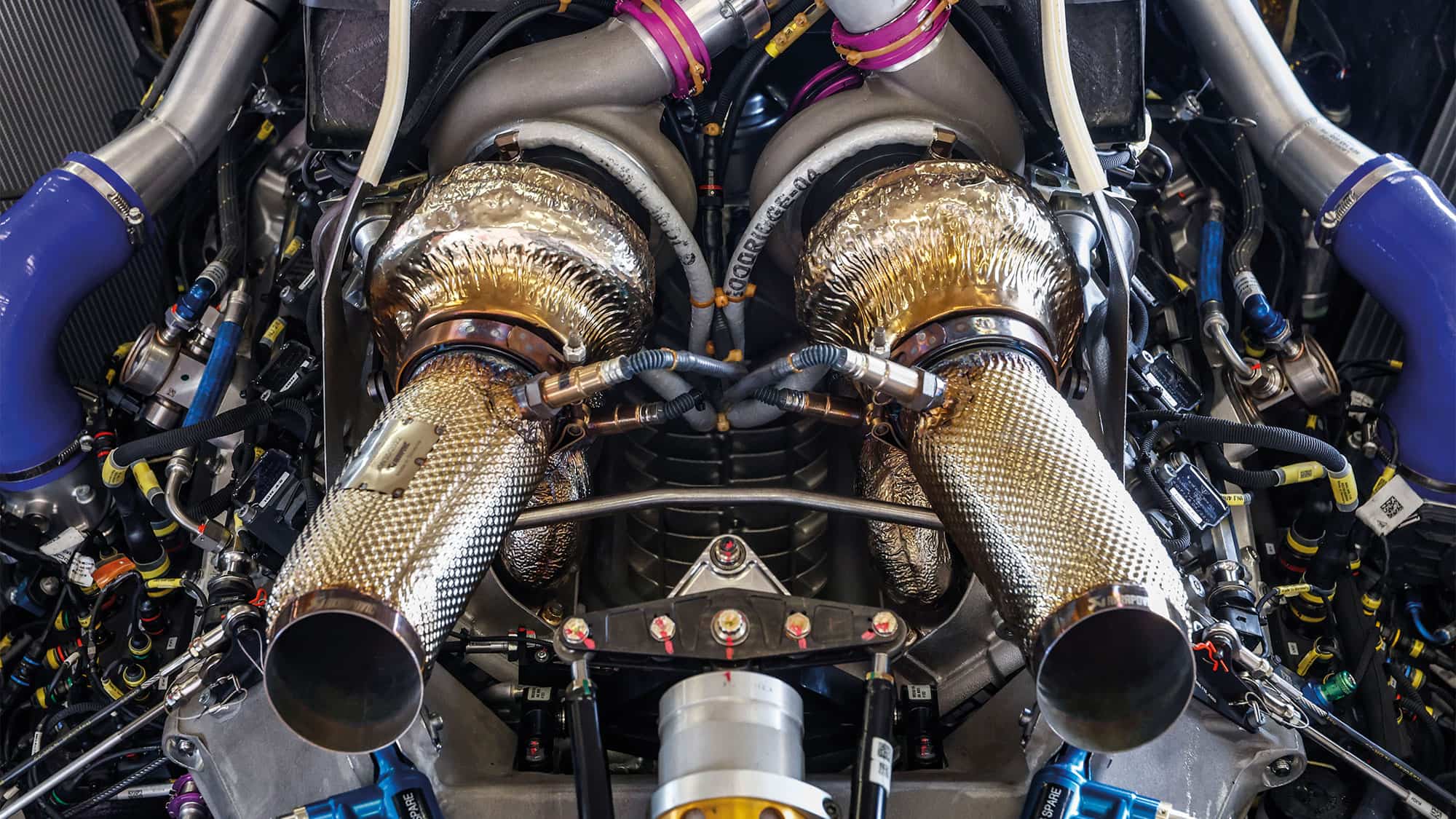
Engines now run on new-spec IMSA 80% biofuel.
Porsche/JÜrgen Tap
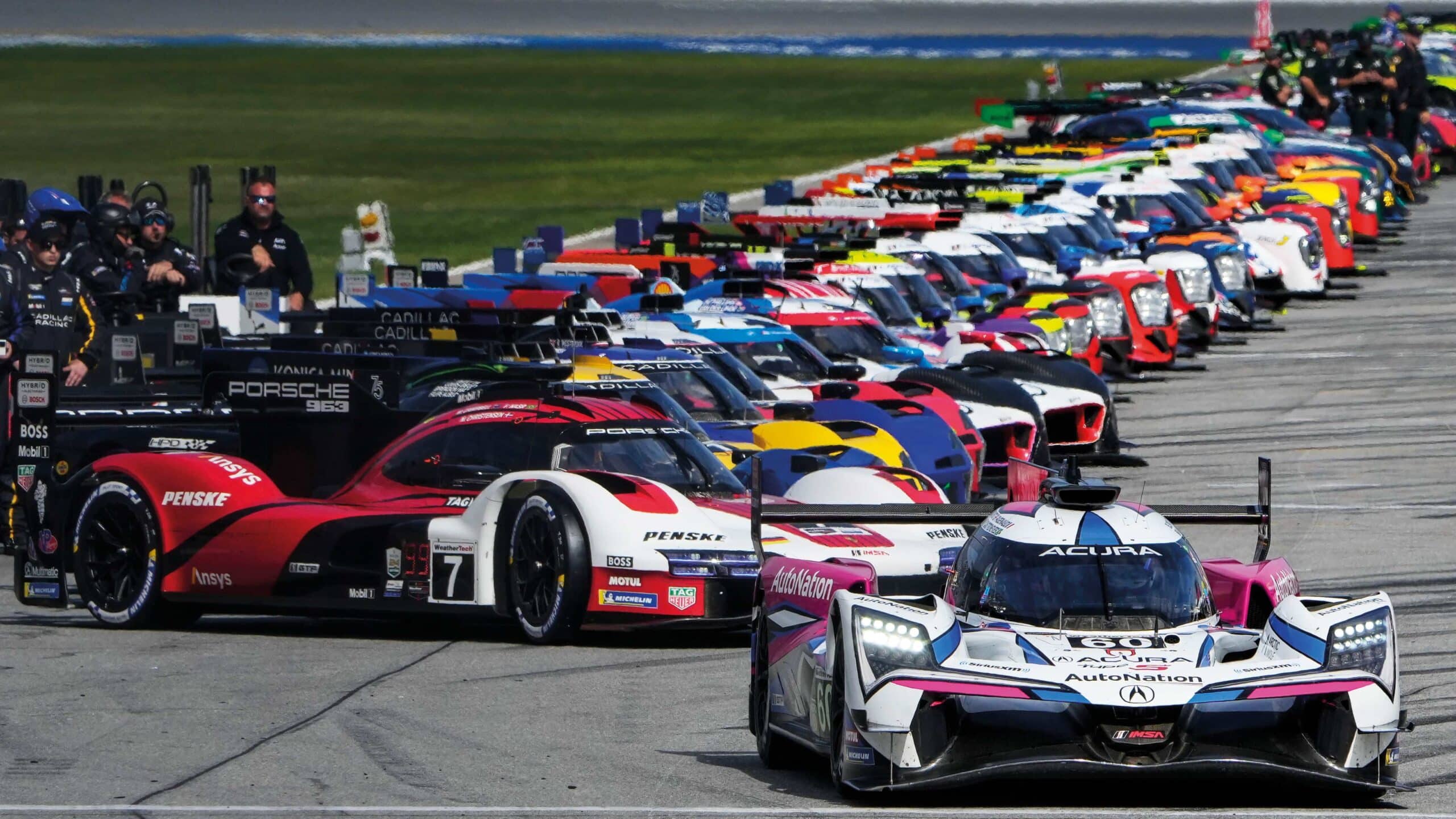
Blomqvist on poll; 0.8sec separated first and eighth
lat/imsa
It was, however, a weekend of mixed fortunes for the makes represented in a class known in IMSA as GTP, a revival of the name employed in the 1980s heyday of a previous iteration of the series. Acura and Cadillac proved they now have machinery capable of going 24 hours. Porsche and BMW did not. Their new LMDh contenders ran into major problems, including issues with the hybrid systems.
“During the night both Acuras slipped back, the winning Shank car by up to a minute”
There’s an irony to Acura’s victory with the Meyer Shank Racing team and the ARX-06 shared by Tom Blomqvist, Colin Braun, Hélio Castroneves and Simon Pagenaud. It was the only one of the four LMDh manufacturers not to attempt a 24-hour test with its new-generation prototype. Porsche and Cadillac successfully negotiated simulations at Sebring, while BMW tried and failed at the same venue. It had to abandon the run early with gearbox problems.
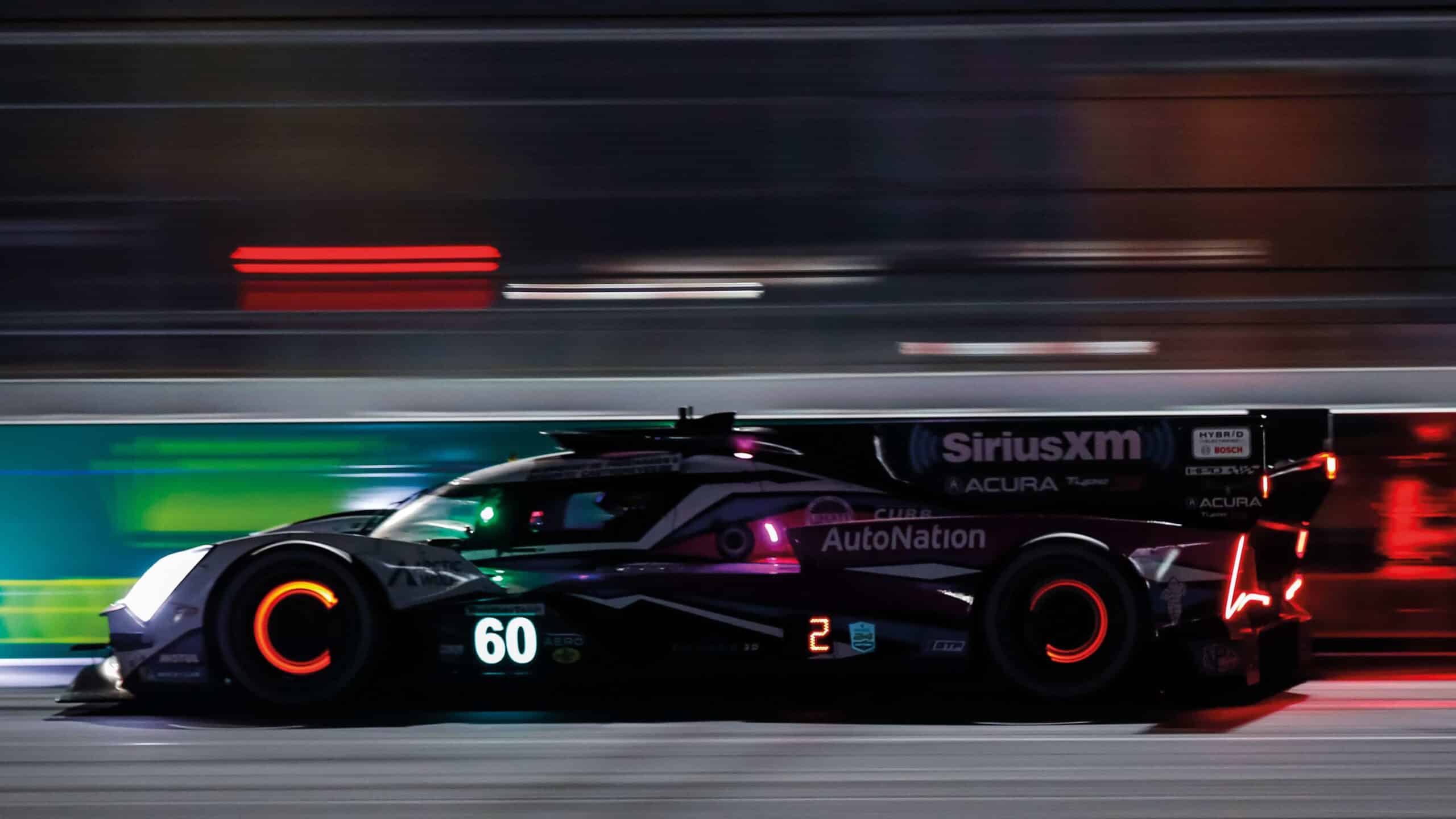
The No60 Acura of Blomqvist Colin Braun, Hélio Castroneves and Simon Pagenaud dropped to third in the night
IMSA
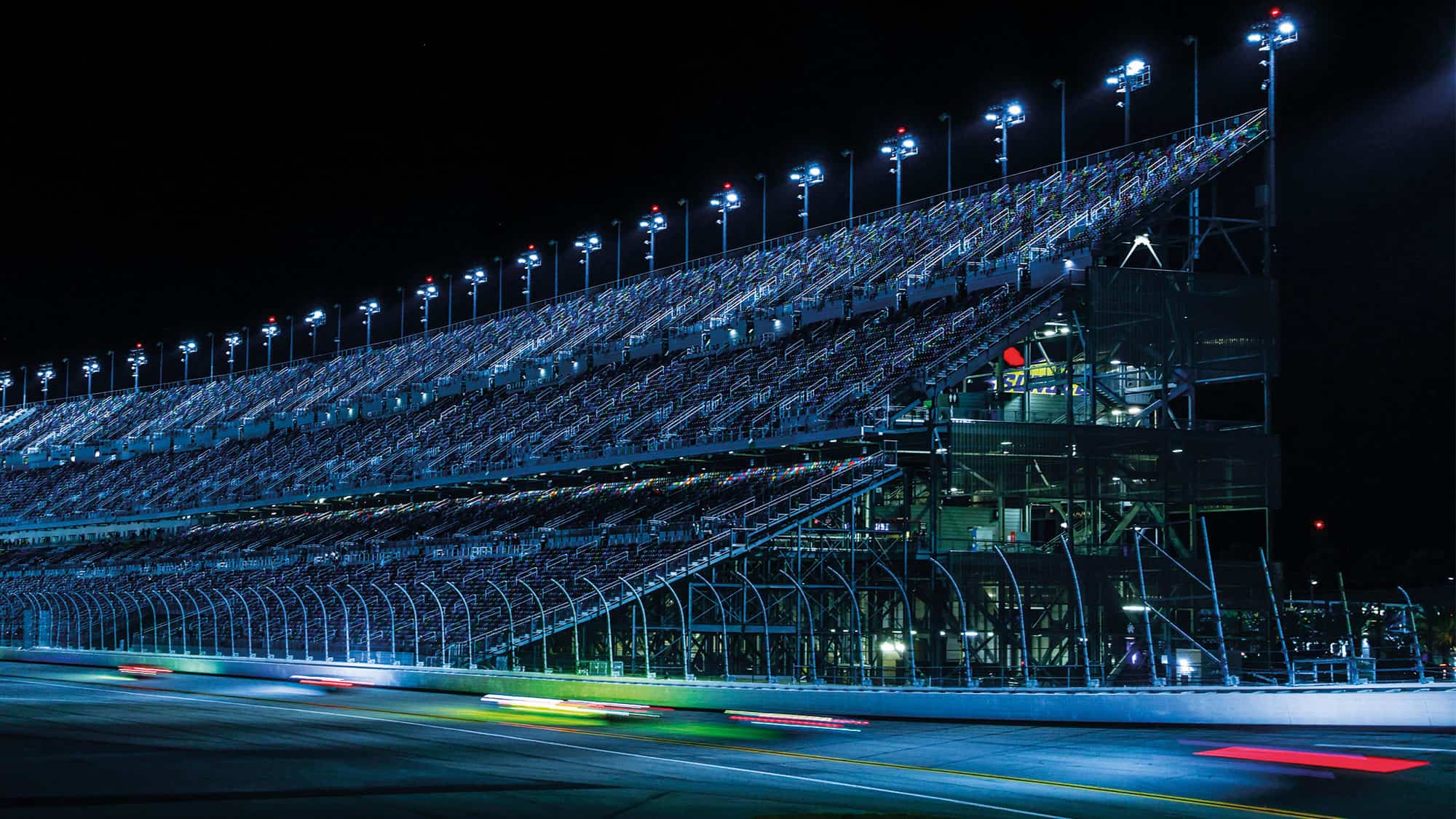
Coffee/beer/bed time
Porsche/JÜrgen Tap
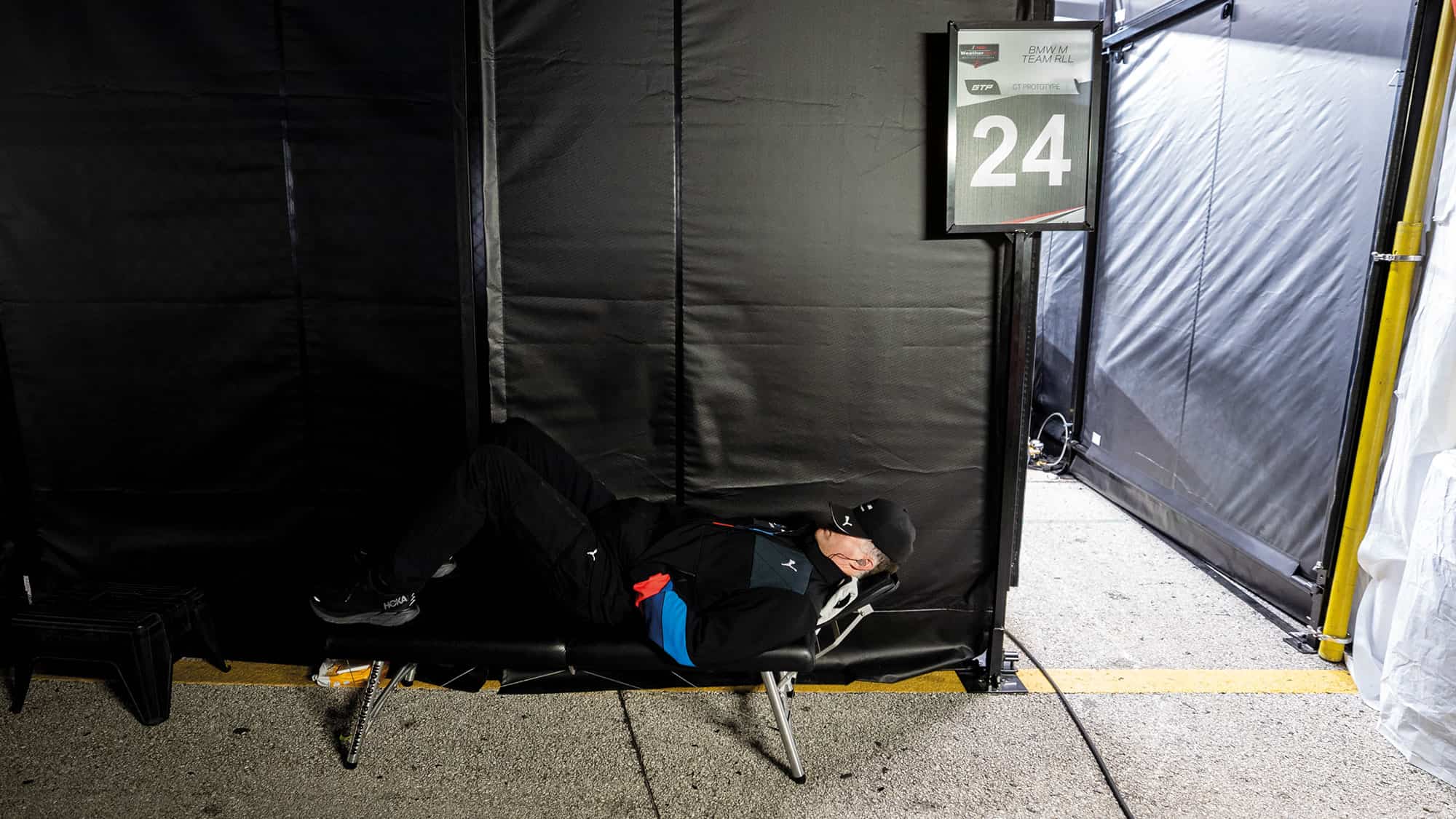
A nap for a member of the BMW team.
Getty images
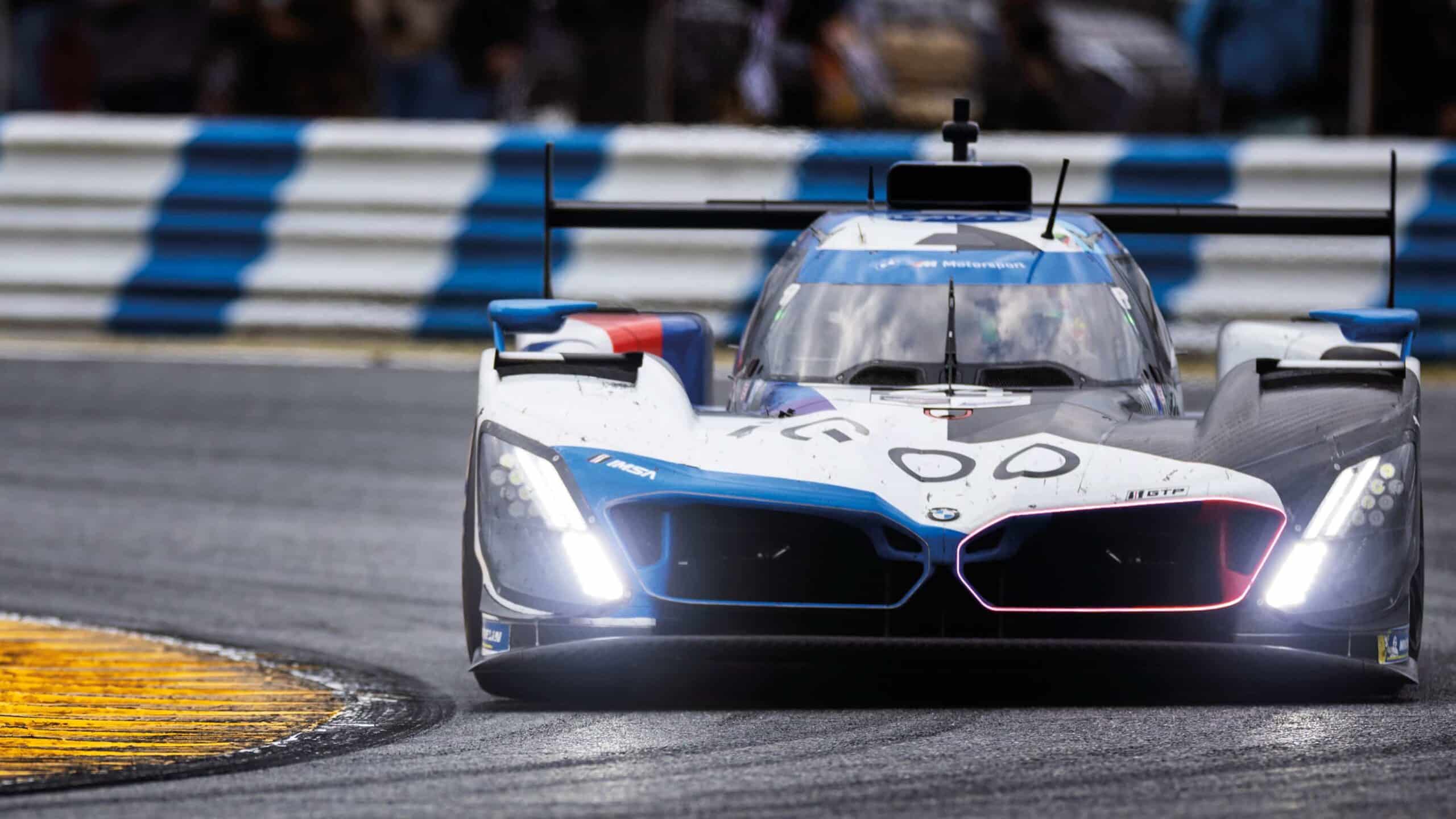
The best of the BMW M Hybrid V8s finished sixth.
Getty Images
Acura instead chose to rack up the miles on the ARX-06 across its regular development testing with the Shank and Wayne Taylor Racing teams, the latter now in partnership with Andretti Autosport after the US superteam took a stake in the winner of multiple Daytonas over the winter. David Salters, president and technical director of the Honda Performance Development organisation that has masterminded Acura’s sports car programmes over the past 15 years reckoned the design developed out of French constructor ORECA’s next-generation LMP2 hadn’t completed more than a quarter of a 24-hour race in continuous running before the event.
“I would always go on the side of making the fast car first, so we probably did, in one continuous run with the car, four or five hours,” said Salters. “But we did lots of slots of that. We were also trying to prioritise given where we were in the programme and with parts supply.”
But the ARX-06 did have problems that at various stages of the race looked as though they might just scupper Acura’s chances of making it three Daytona wins in a row after the respective 2021 and ’22 victories for WTR and Shank with the ARX-05 Daytona Prototype International. During the night both Acuras slipped back, the winning Shank car by up to a minute, the WTR entry that came home second by as much as three laps at one point. The new 2.4-litre V6 twin-turbo powerplant in the back of the car needed periodic stops to partially purge and then replenish the engine oil as a result of fuel contamination. This was a problem that Acura knew might raise its head once it had started running on the new spec IMSA fuel supplied by VP Racing with an 80% bio content.
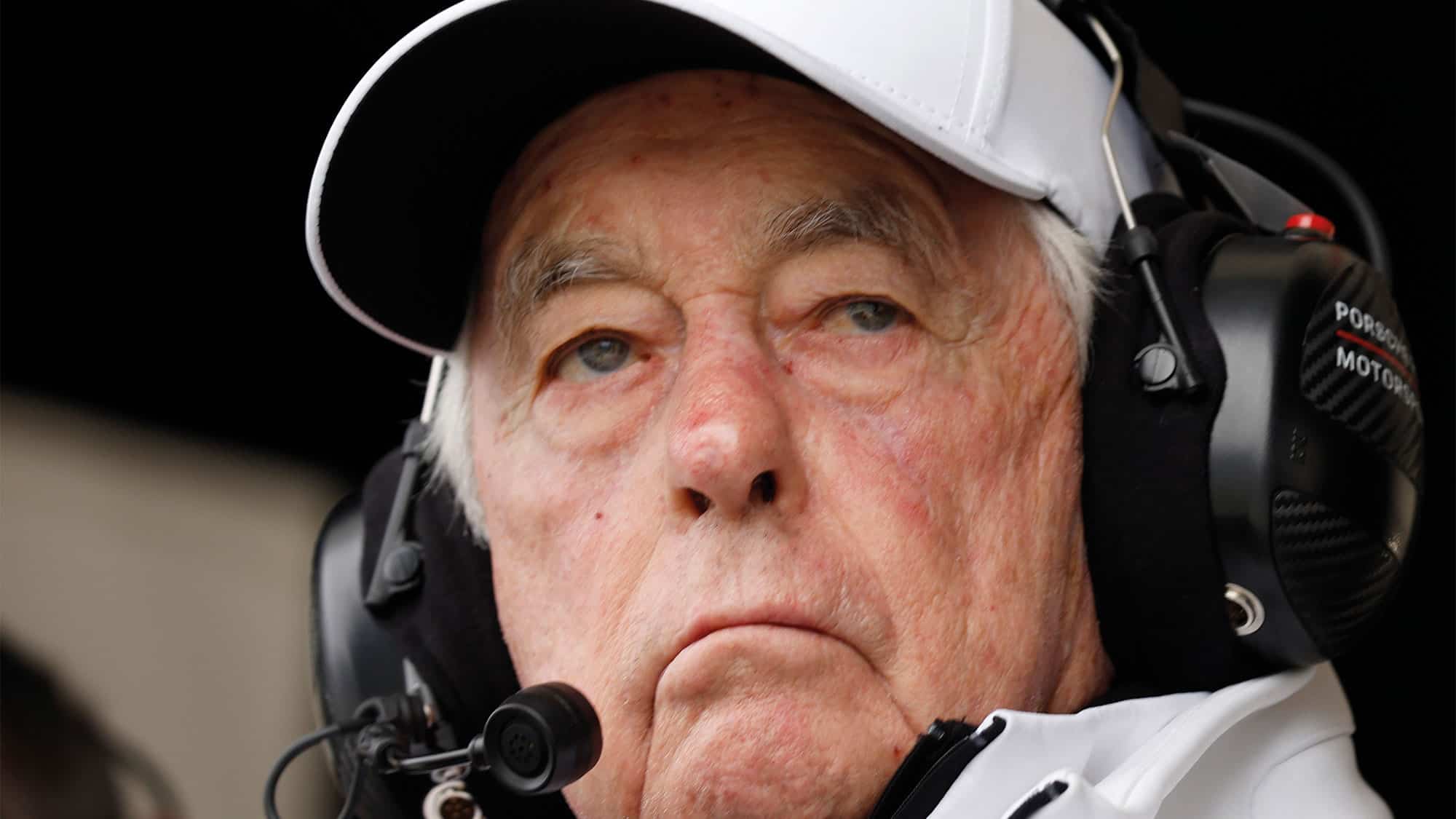
Roger Penske oversees the team’s progression
LAT
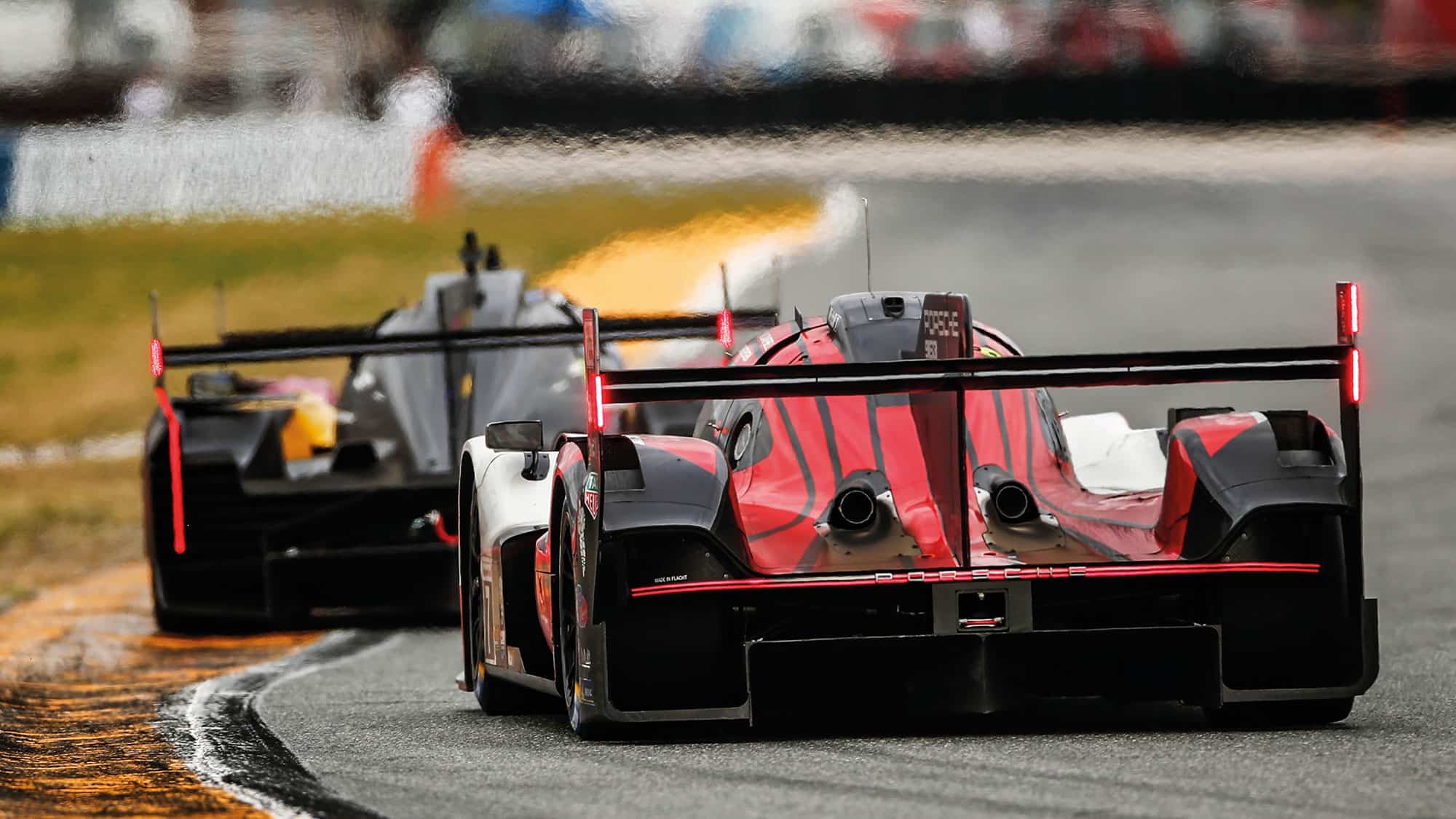
Porsche said that it would learn from its Daytona disappointment.
Porsche/JÜrgen Tap
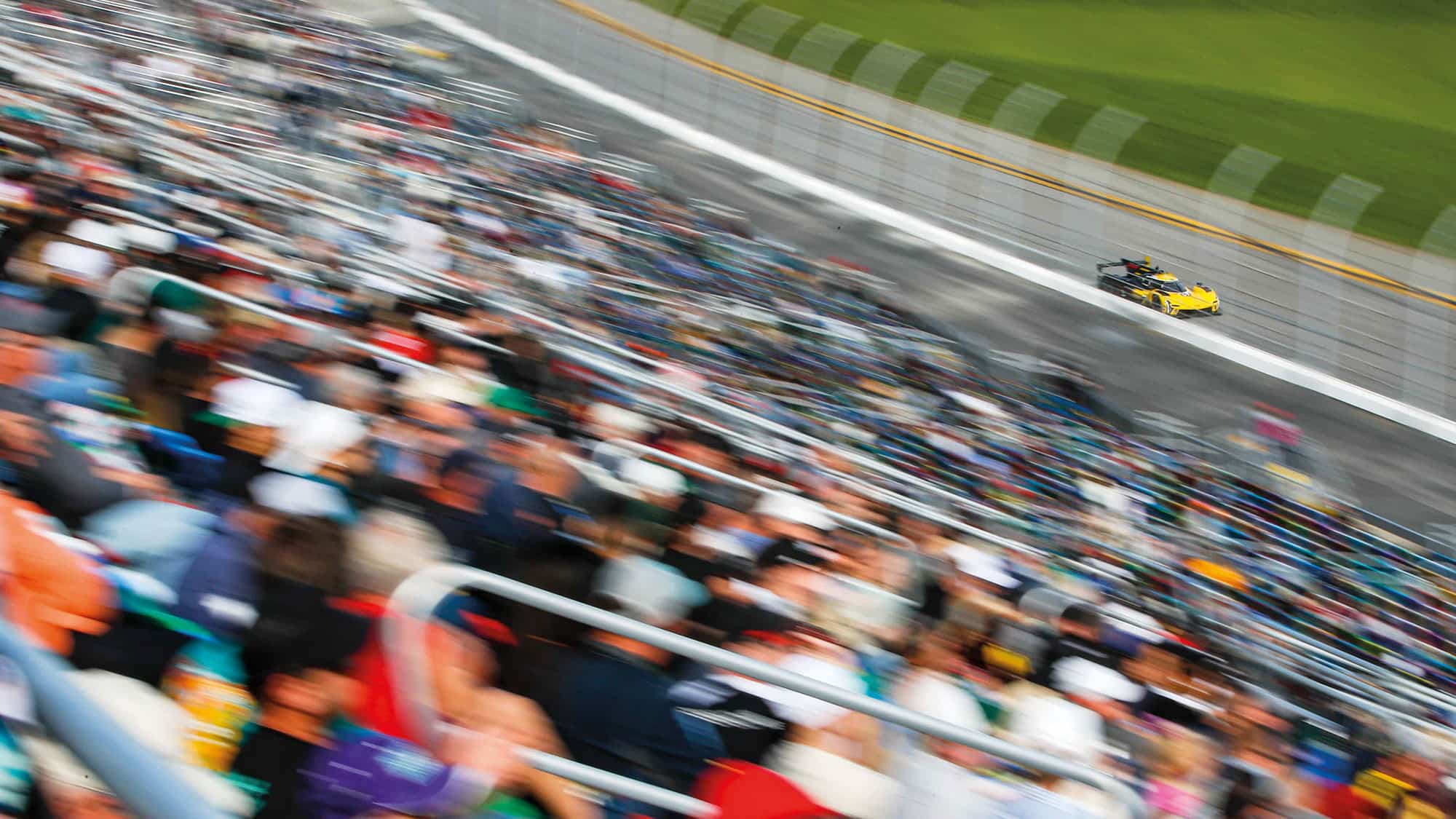
The No1 Cadillac of Sébastien Bourdais, Renger van der Zande and Scott Dixon was in front in the morning.
IMSA
The teams first got their hands on the new fuel in November, five months into the test programme with the ARX-06 and after Acura had made a concerted drive to reduce the oil consumption of the engine.
“Our car had a gearbox problem all night and we couldn’t fix it”
“With biofuel some of the bits are a bit heavier [than in conventional fuel] and want to stick around more in the oil,” explained Salters. “If the engine is burning a bit more oil, it kind of balances itself out. Six months ago we really worked quite hard to reduce oil consumption, so it proves that sometimes you’ve got to be careful what you wish for.”
There was another glitch on the winning Acura, one that caused concern on the pitstand rather than slowing the drivers out on track. The team noticed rising gearbox oil temperatures on the telemetry as early as a quarter of the way through the race and monitored them closely thereafter. That is until the temperature hit 90°C.
Then it was as case of “if it goes, it goes”, said team boss Mike Shank. “Our car had a gearbox problem all night; I mean, all night, and we couldn’t fix it. We decided just to run it until it blew up. It didn’t blow up. We got super lucky.”
The need for lubrication top-ups on the Shank car explained why it made 35 pitstops over the course of the race compared with 29 for the Chip Ganassi Racing-run Caddy driven by Sébastien Bourdais, Renger van der Zande and Scott Dixon in third place. And the deficit to the Caddy through a protracted period without a safety car during the night and into the hours of daylight.
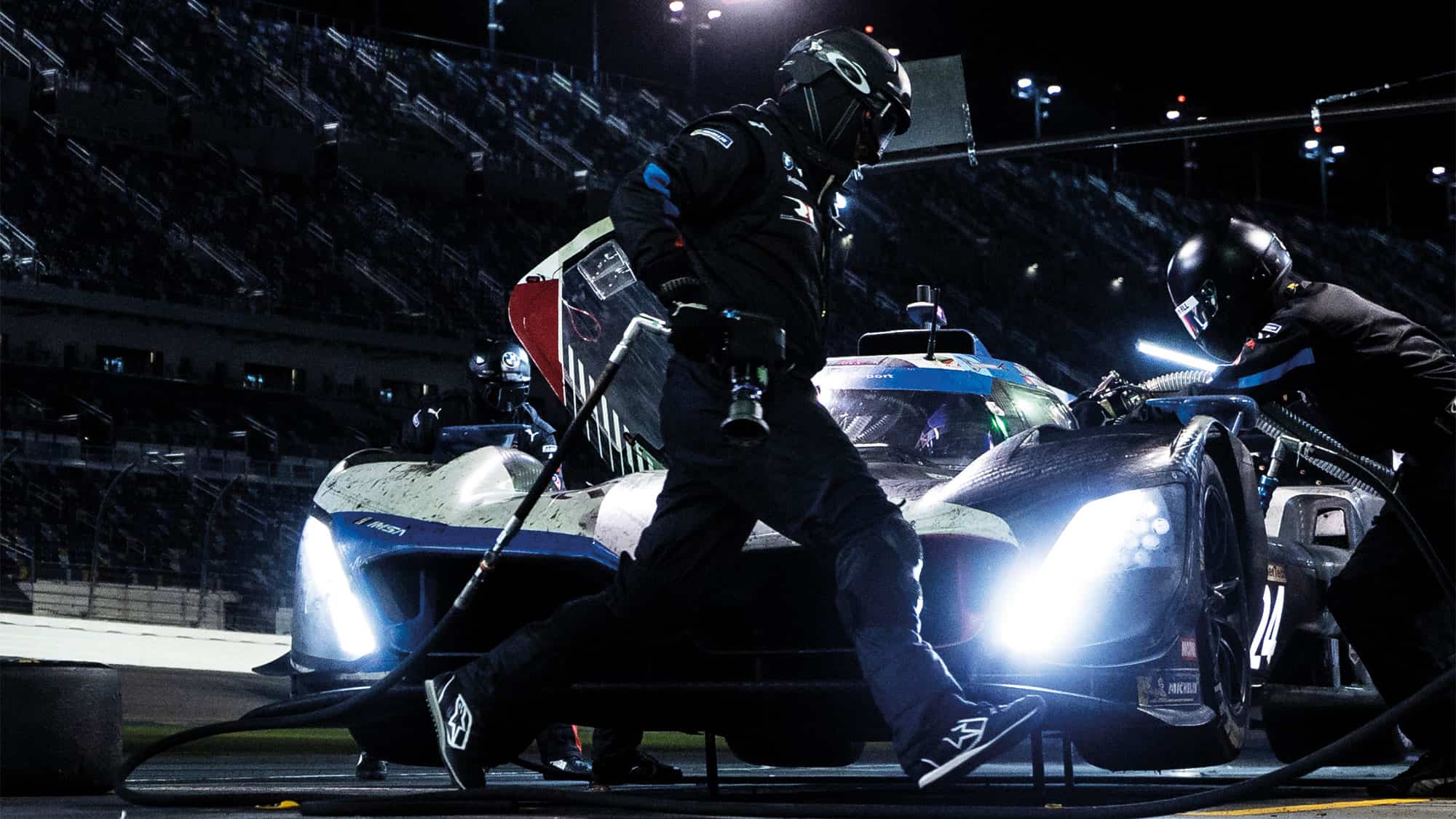
For the BMW, Daytona was its first 24-hour test and both cars crossed the finish line.
Getty Images
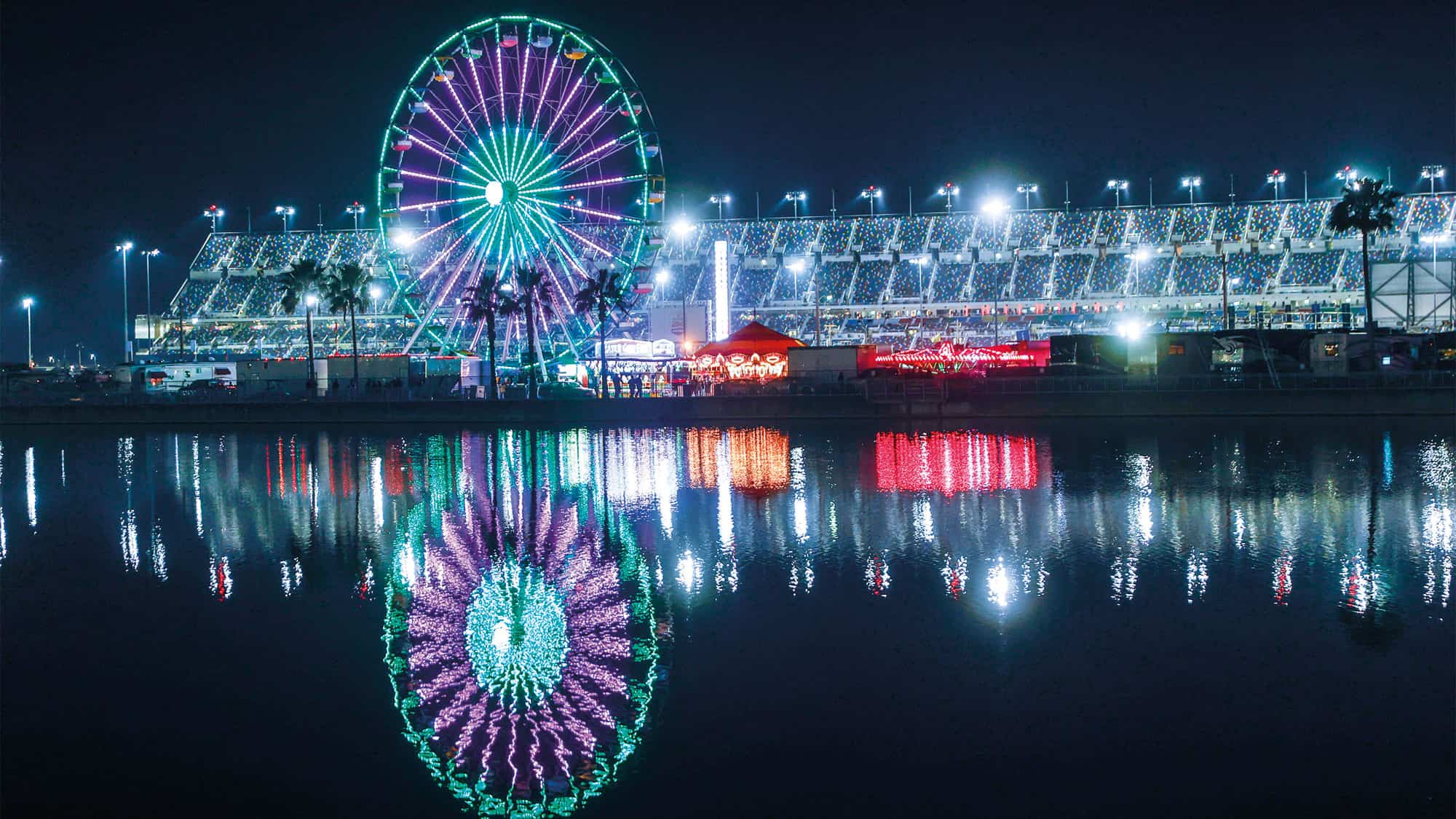
Porsche/JÜrgen Tap
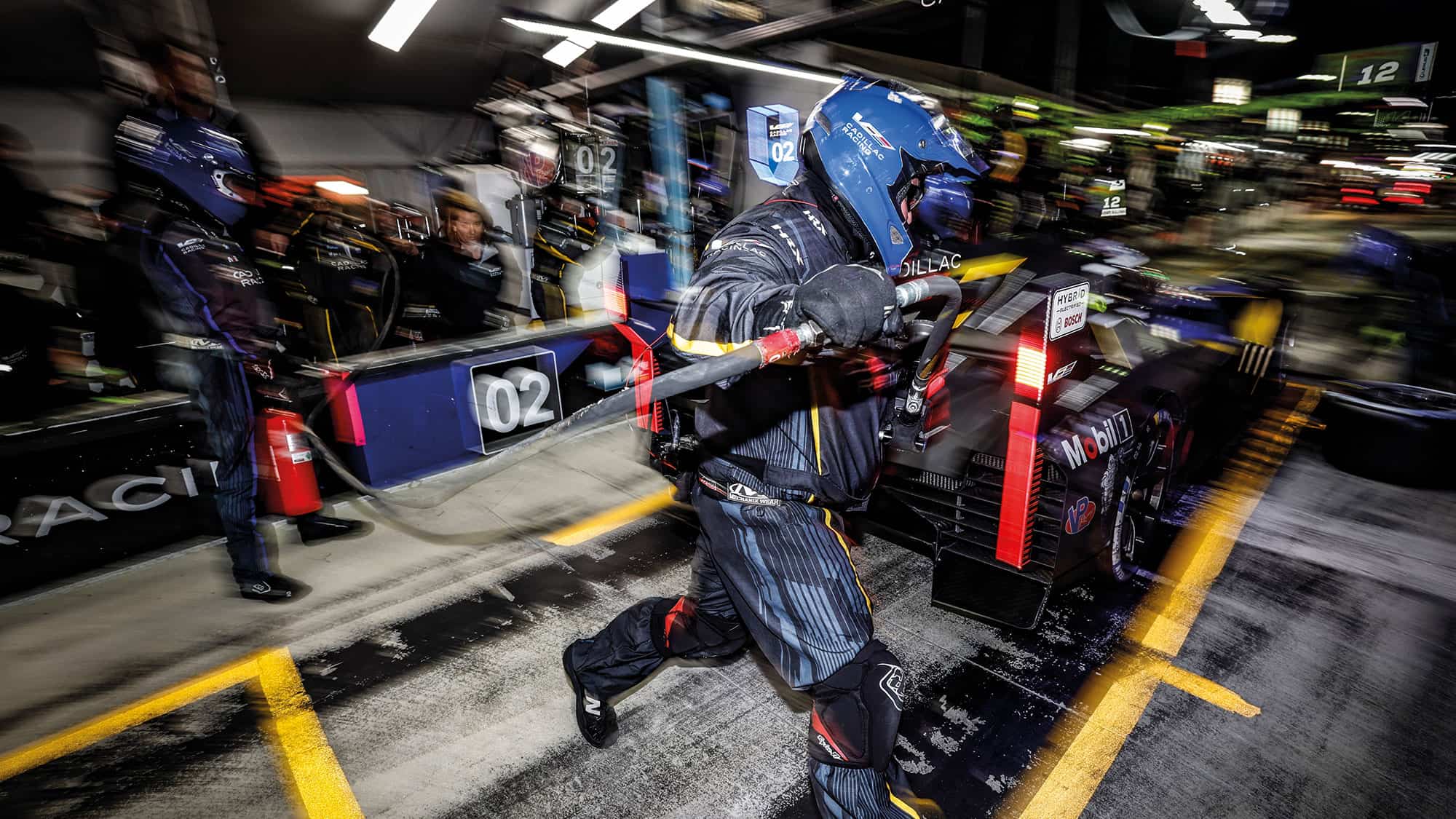
Cadillac crew spring into action
LAT
But as soon as the field was closed up when yellow flags flew again in the 21st hour, Pagenaud brought the Shank Acura into the lead. It would stay there through another five safety cars and the remaining 97 laps of the race. The Acura was the quickest LMDh at Daytona, the Shank car enjoying a slender advantage over WTR’s shared by Ricky Taylor, Filipe Albuquerque, Louis Delétraz and Brendon Hartley. The pair of ARX-06s were separated by a tenth or so on the race averages, with the Cadillacs and the Porsches languishing three or so tenths back.
“At the end of the day, we didn’t have the pace to win,” said van der Zande succinctly after the race. “Finishing third is not what we came for, but it’s the first time with the car and we got points with the podium to start the season.”
It wasn’t a bad day for Cadillac and its V-LMDh developed in conjunction with Dallara. The second Ganassi entry, which is switching to the WEC for the rest of the year, came home fourth, while Action Express Racing took a delayed fifth after losing 30min to rear-end repairs following a clash with a GT car.
“Porsche was in trouble as early as the sixth hour with the car that started on the front row”
The Penske Porsche and Rahal BMW teams put entirely different fronts on what from the outside looked like disappointing debuts for their respective 963 and M Hybrid V8 LMDhs. Porsche could manage no better than 14th overall and seventh in GTP with the car in which Felipe Nasr had missed out on pole position to Blomqvist by just eight hundredths. BMW managed a top-six finish, albeit a distant one with the best of its M Hybrids that came home 15 laps in deficit.
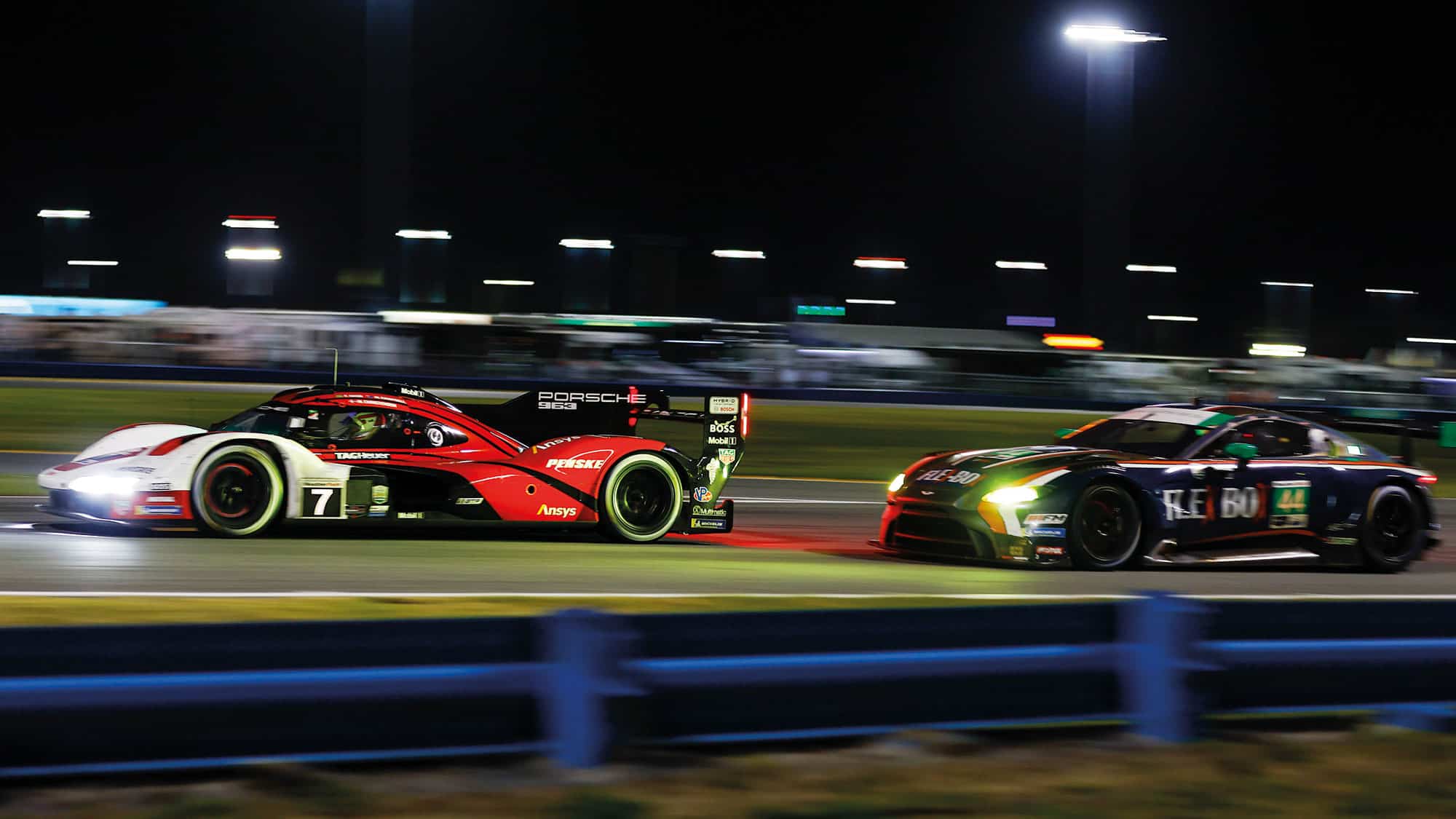
The Porsche 963 of Matt Campbell, Michael Christensen and Felipe Nasr weaves past the GTD class Magnus Aston Martin
Getty Images
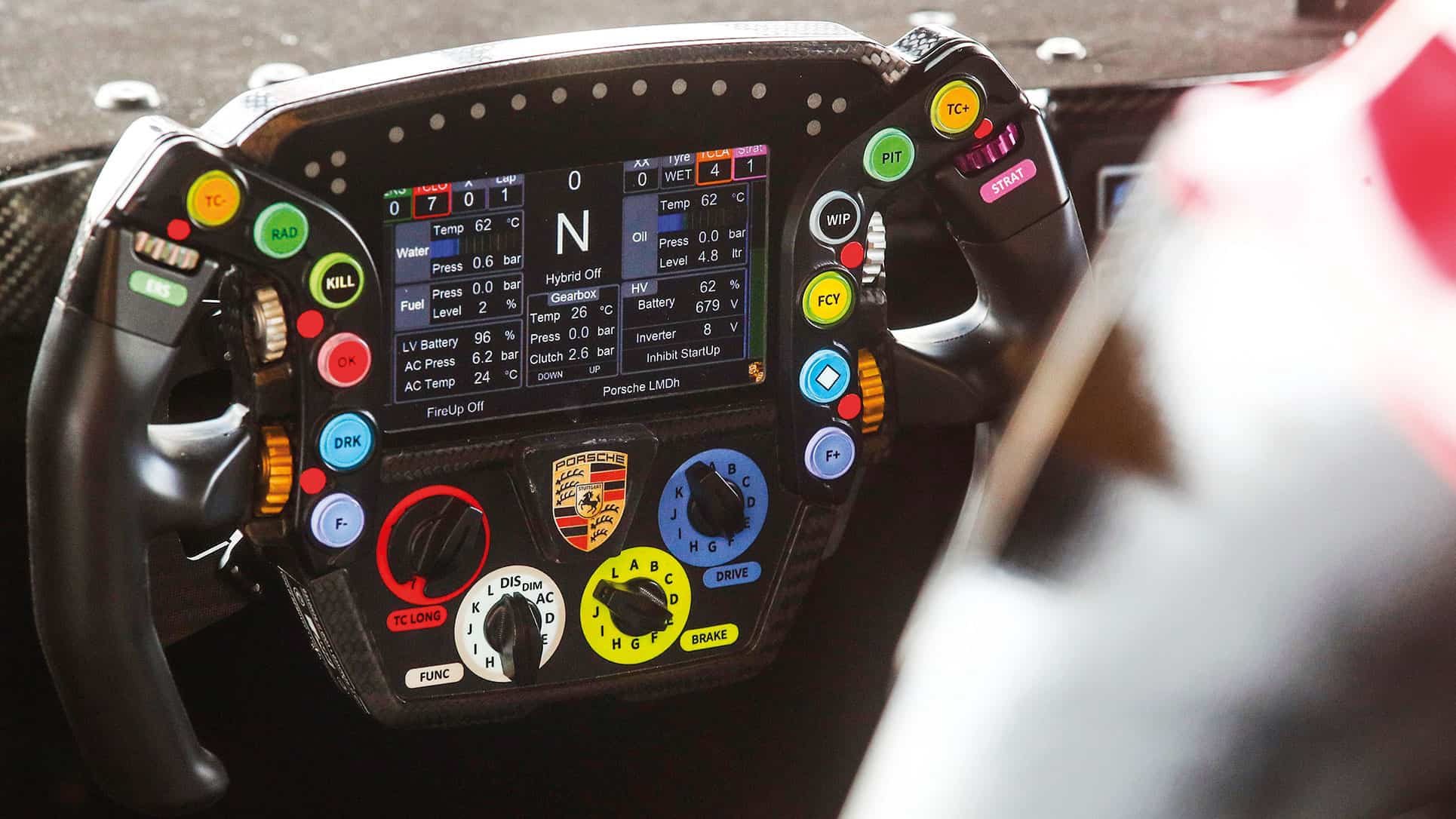
A world of information on the Porsche steering wheel.
Porsche/JÜrgen Tap
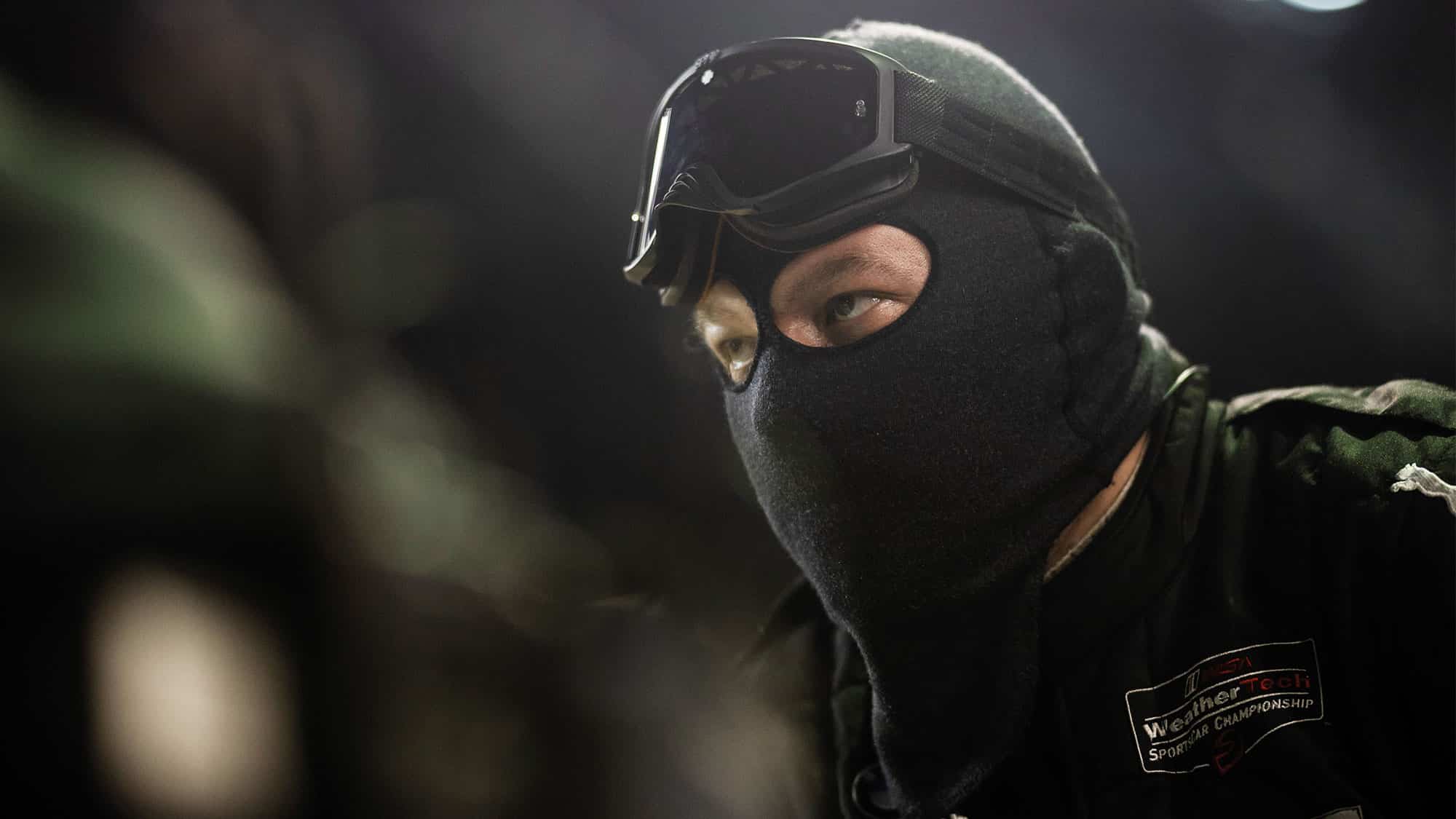
Marco Wittmann awaits his turn in the BMW
Getting Images
“A disappointing race, not the result we were looking for,” said Urs Kuratle, Porsche’s director of factory motorsport (LMDh). “We were hoping for more, mostly because we managed to set a fantastic pace at times. On the other hand we learned a lot.”
“Porsche was in trouble as early as the sixth hour with the car that started on the front row”
Porsche arrived at Daytona with the most testing under the belt of its LMDh, more than 18,000 miles since the car developed in conjunction with Multimatic first ran more than a year before its race debut. Yet it was in trouble as early as the sixth hour with the car that started on the front row.
The high-voltage battery required changing as a result of an issue with the “safety systems and protocols”, explained Jonathan Diuguid, boss of the Porsche Penske Motorsport organisation running both the IMSA and WEC programmes. More than half an hour was lost to the change. A water leak on the Porsche’s 4.6-litre twin-turbo V8 cost more time later in the race.
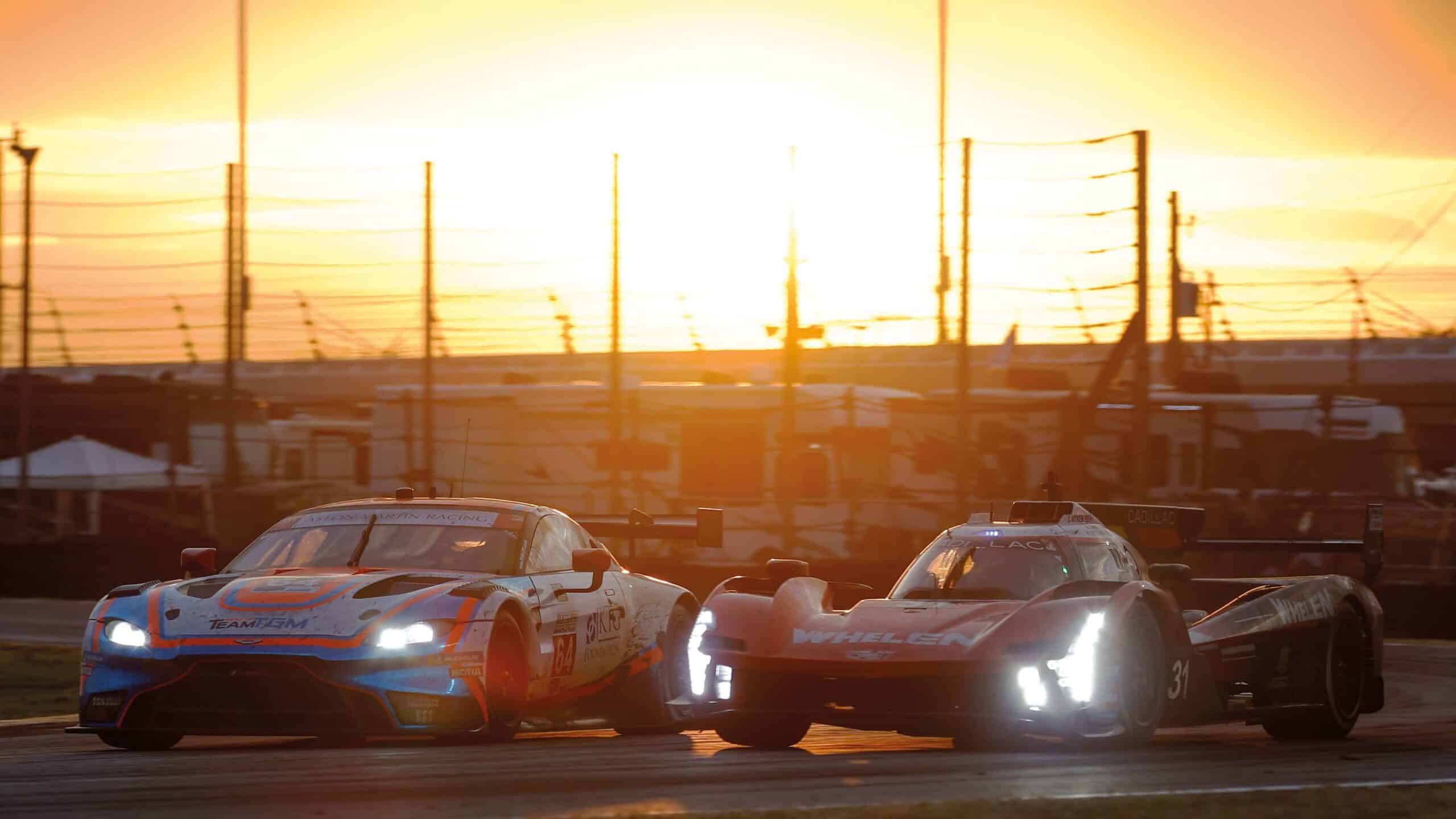
The Whelen Cadillac, right, driven by Pipo Derani, also led but suspension damage sidelined the car for 30mins
Getty Images
The sister car was still running strongly as the race drew to a close left after losing three laps when Nick Tandy went off in the infield and damaged the front splitter and rear diffuser running over sandbags that secure an innocuous-looking polystyrene advertising hoarding. A gearbox problem subsequently resulted in the car’s retirement.
BMW ran into hybrid problems with both its cars. It opted to change the complete system after one of the cars stopped in the opening hour. “It wouldn’t have been efficient to do a piece-by-piece analysis,” said project boss Maurizio Leschiutta. A late change of pads and discs on the sister car that came home sixth was precipitated by an issue with the rear-axle brake-by-wire integral to the hybrid system, he explained.
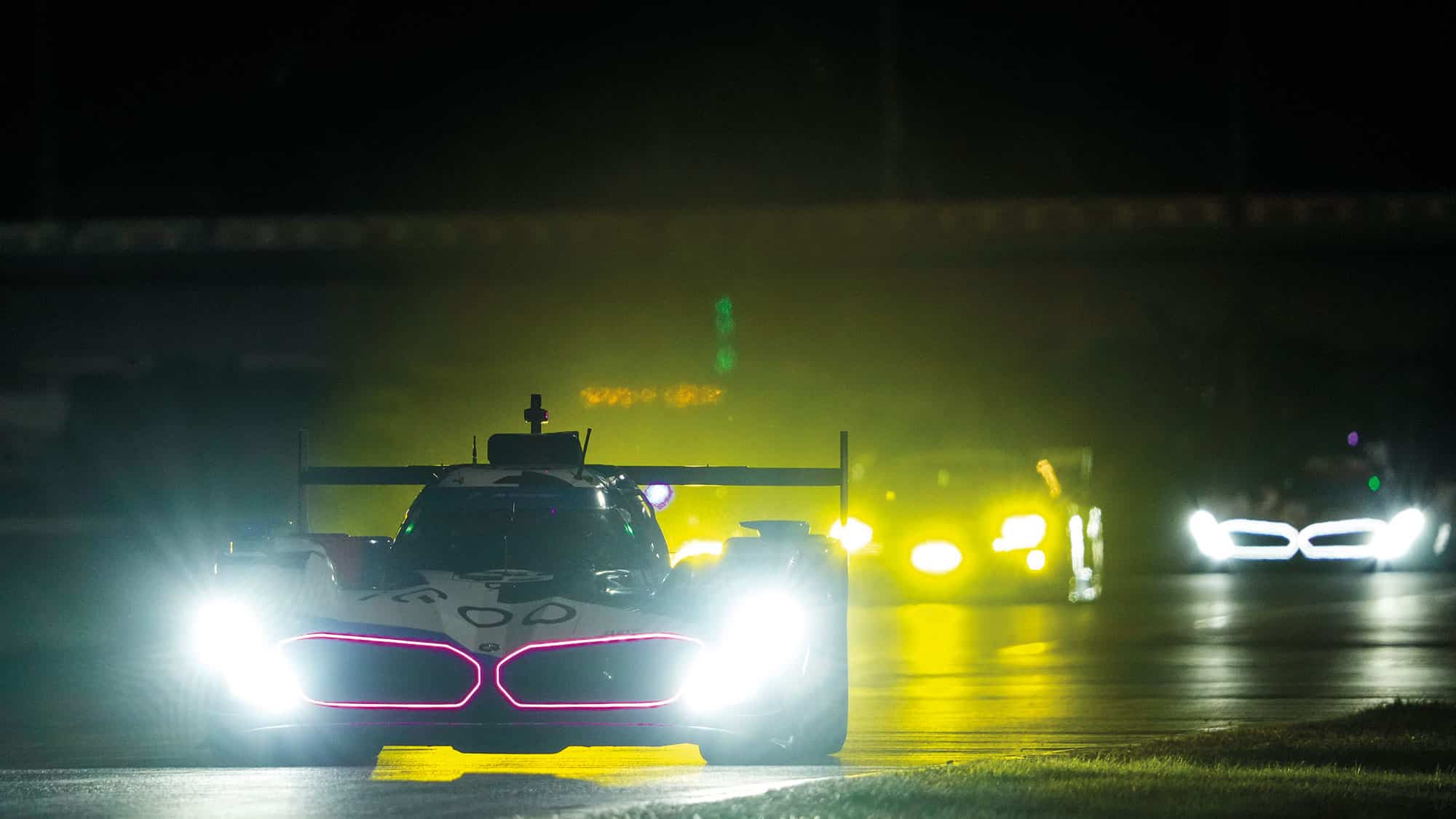
The BMW M Hybrid was on track just 188 days after its roll-out.
lat/imsa
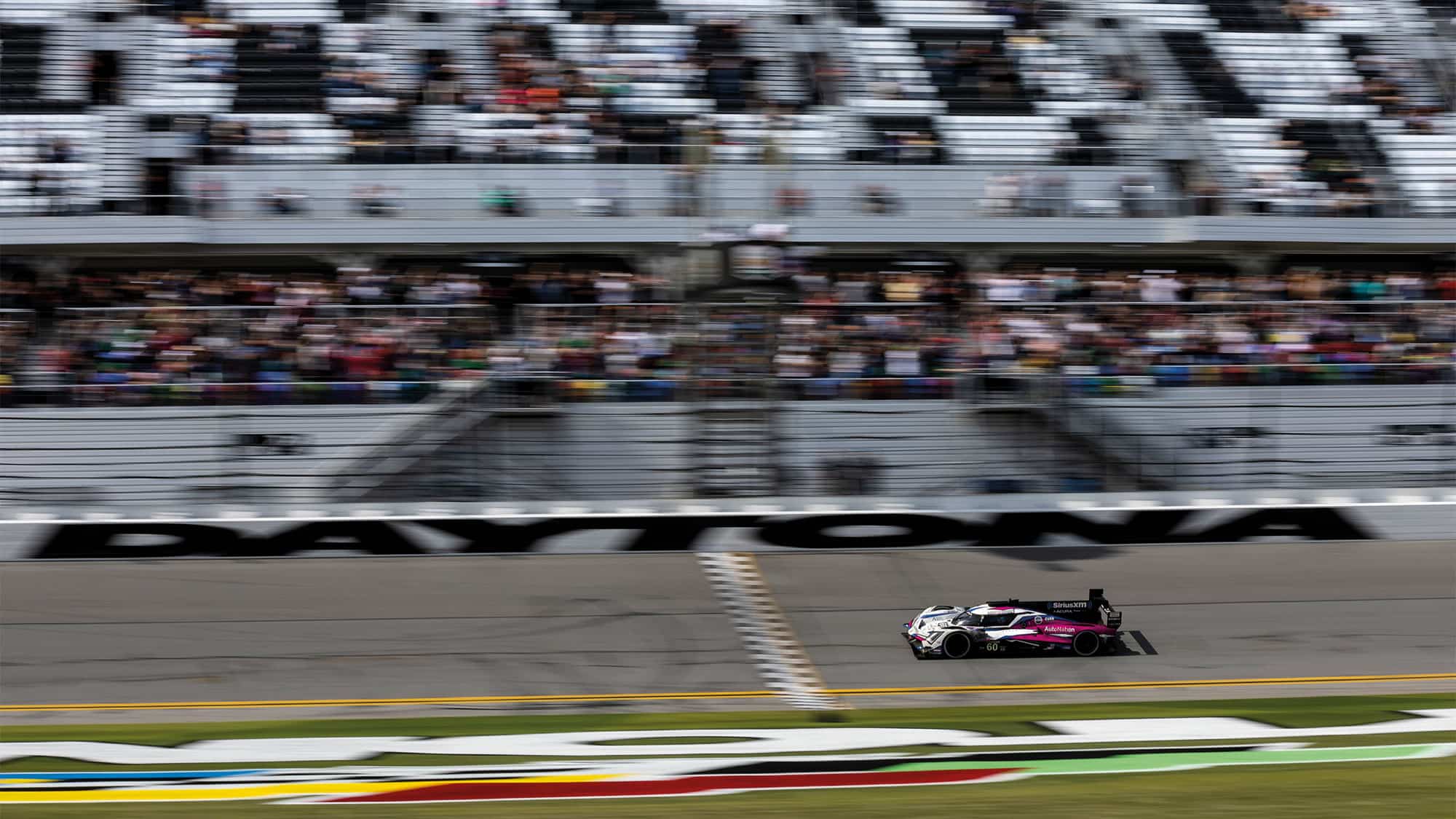
Blomqvist crosses the line in the Acura
Getty Images
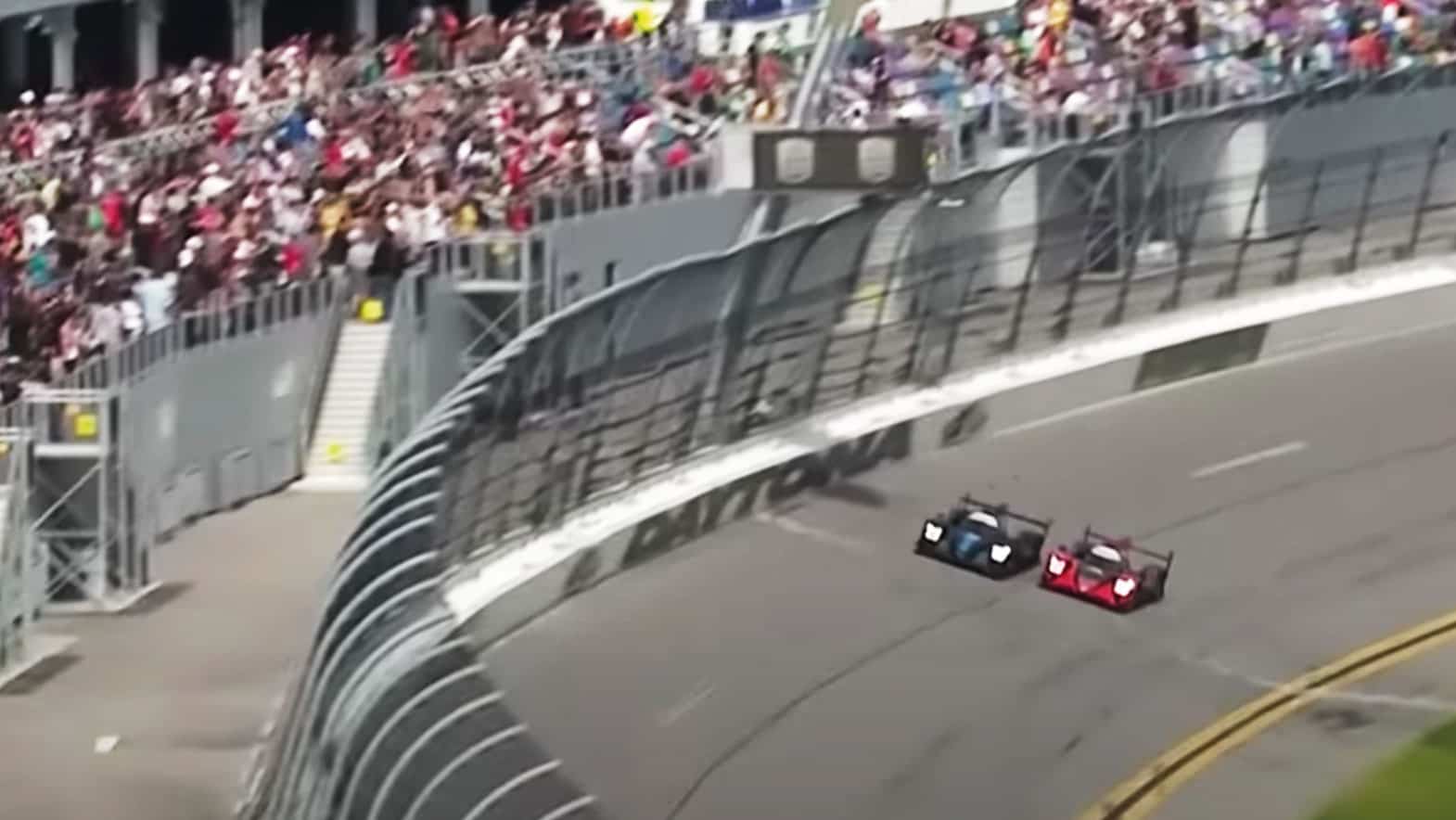
An incredible photo finish in LMP2, with Proton’s James Allen, left, edging past Crowdstrike’s Ben Hanley
IMSA
Leschiutta insisted there was no dissatisfaction with the debut of M Hybrid, neither in terms of the reliability or pace — even though it was the slowest of the four LMDh manufacturers. He pointed out that it had to be viewed in the context of the timeline of development of a car also based around the Dallara LMP2 chassis spine. The programme was only signed off in June 2021, or to put it another way, just six months before Porsche started testing.
“We had our challenges during testing, so this was our first 24-hour test – we can be very happy,” said Leschiutta. “We know now what our weakness are and will be working on them before the Sebring 12 Hours.”
That’s the next round of the IMSA series on March 18, the day after Porsche and Cadillac will be in action in the opening round of the 2023 WEC, the Sebring 1000 Miles. For all the hyperbole at Daytona, it wasn’t quite the start of the new era as proclaimed by IMSA. More correctly it was a start, one of two, the first of which happened the better part of two years ago when the first LMHs arrived in the WEC.
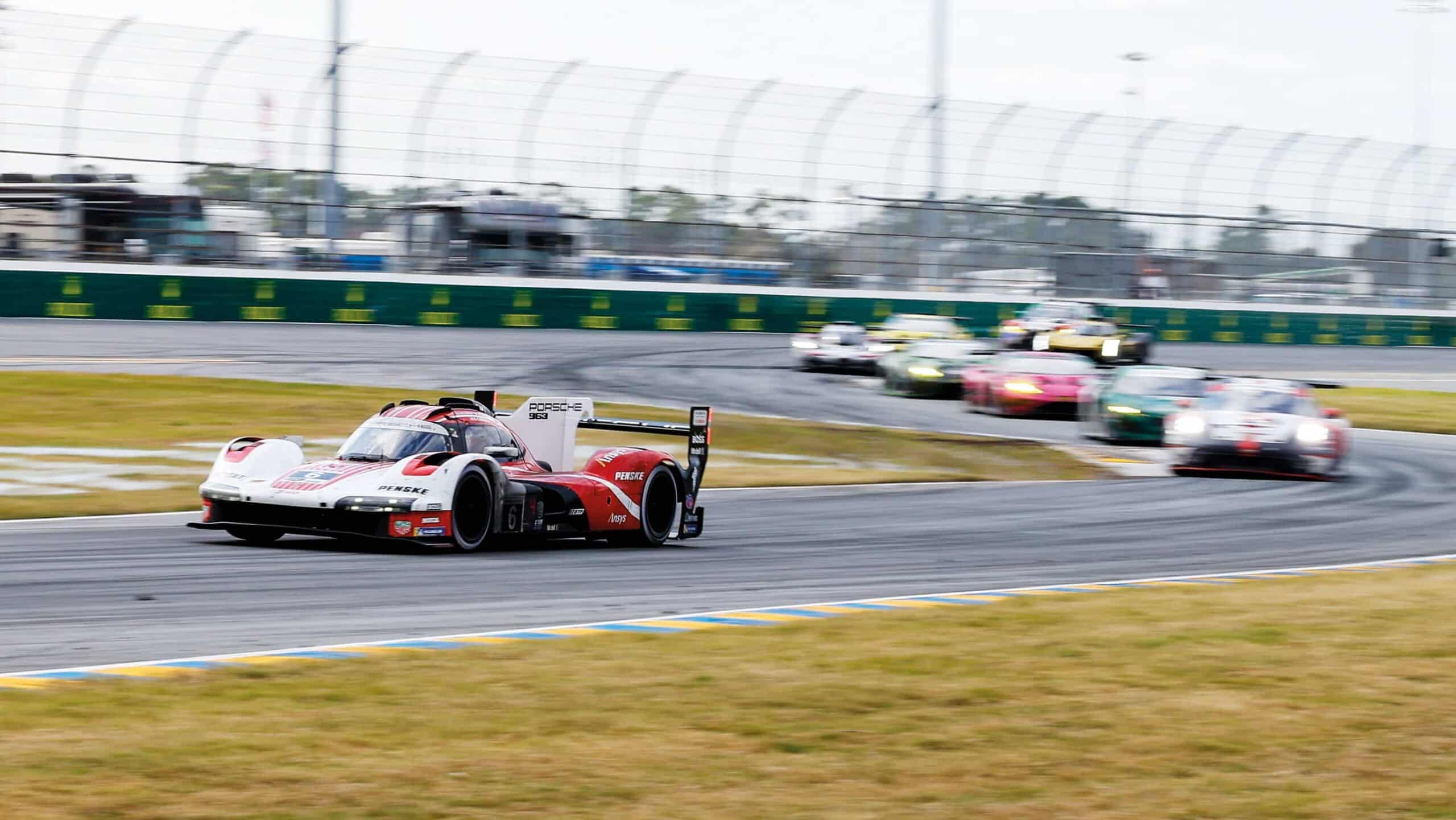
Porsche will be looking for improvement at the Sebring 12 Hours on March 18, but will face old enemy Ferrari
Getty Images
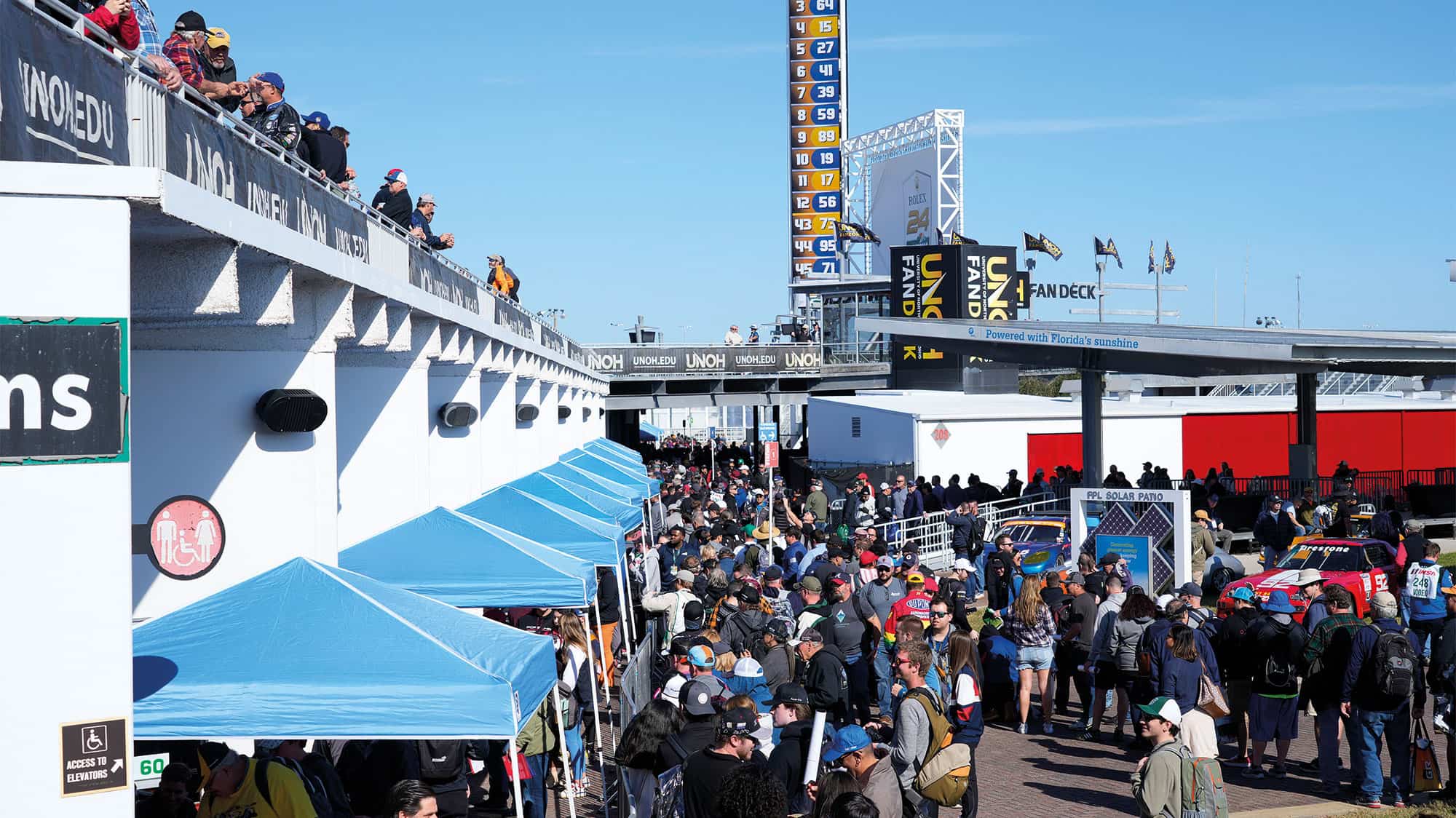
Selfie grabbing and autograph hunting.
lat/imsa
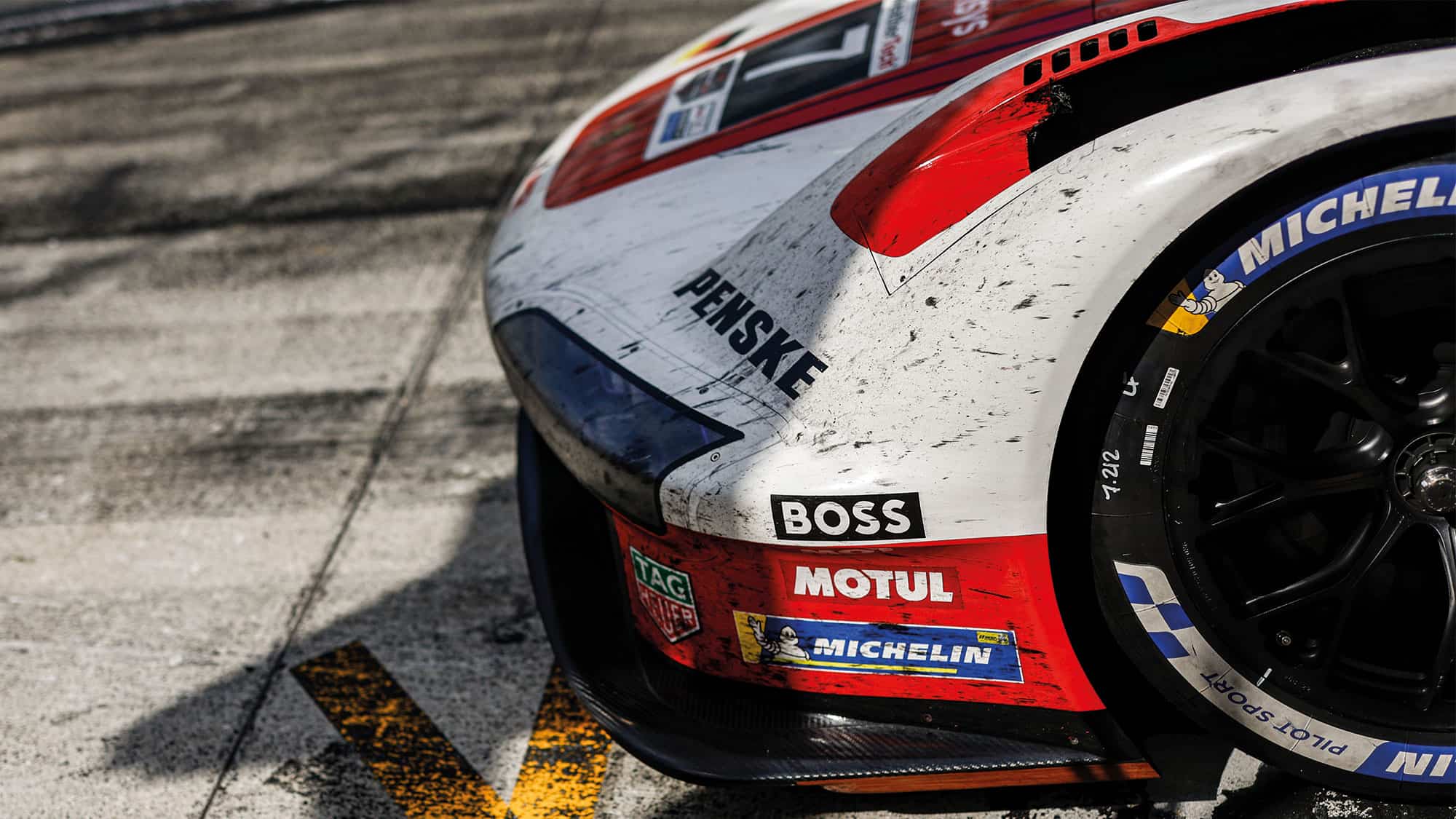
Porsche back in the league of champions
Porsche/JÜrgen Tap
LMDh outdid LMH on debut: there were just two LMHs on the grid for the Spa 6 Hours that kicked off the 2021 WEC and they were both Toyotas (the other car in the Hypercar field was the down-specced ORECA LMP1 design running Alpine badges). We had to wait a race for a second LMH manufacturer, Glickenhaus, to join them, and then another year before Peugeot’s arrival through 2022.
The WEC portion of the SuperSebring weekend in March is when the new era really starts because the LMHs and the LMDhs will race together for the first time. That’s when Porsche and Ferrari will upscale their rivalry from the GT ranks to the front of the grid, when they will go head to head with Toyota and Peugeot, two manufacturers with eight Le Mans 24 Hours wins between them. Cadillac, winner at Daytona four times in a row from 2017-20 in the DPi era, will be on the grid too, along with LMH minnows Glickehaus and Vanwall.
Daytona was a staging post on the road to the approaching golden era, but it was an hors d’oeuvre, like the past two WEC seasons. The main course arrives at Sebring.
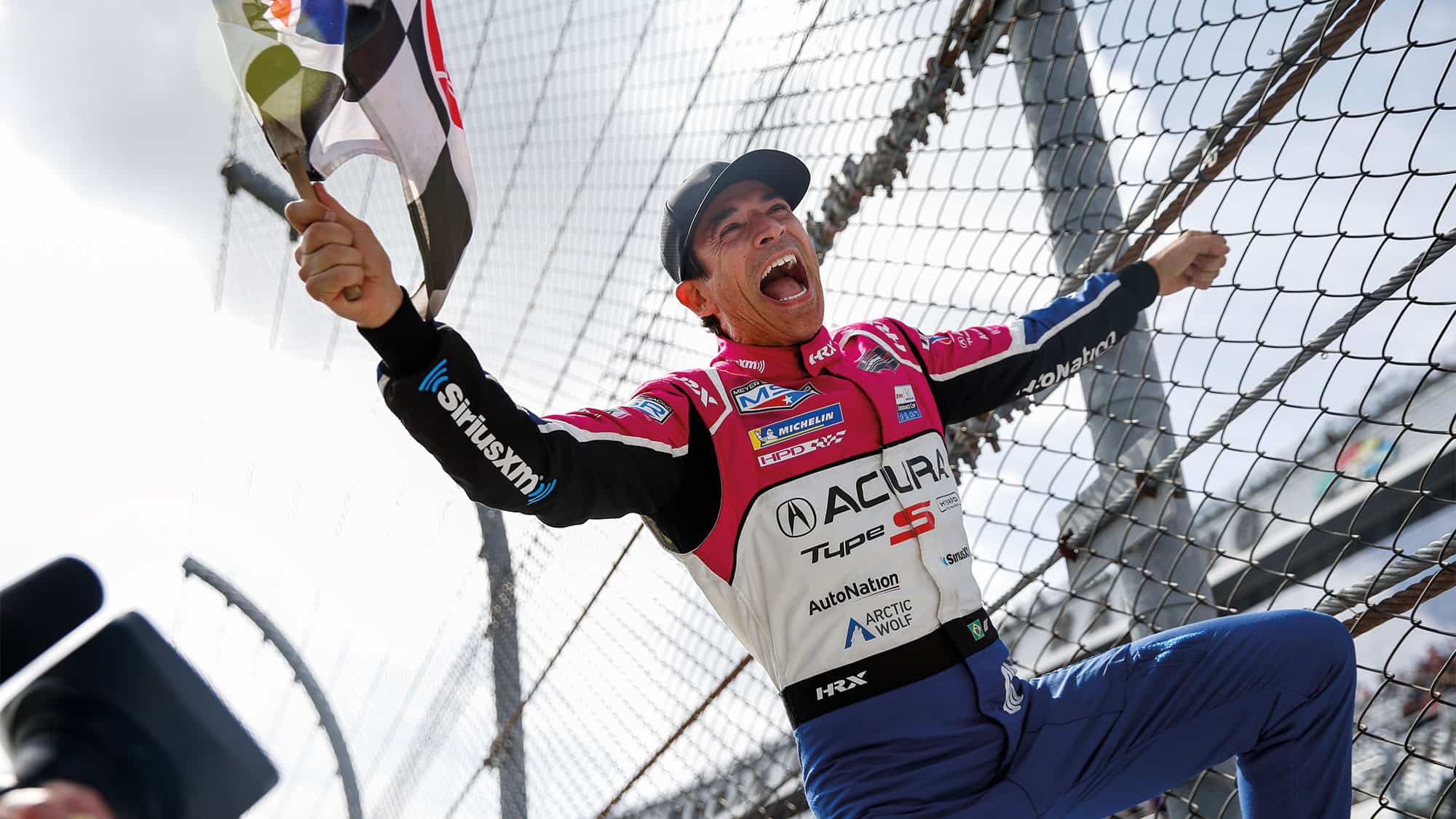
Castroneves in now regulation fence-climbing pose after a third Daytona 24 Hours win on the trot
IMSA
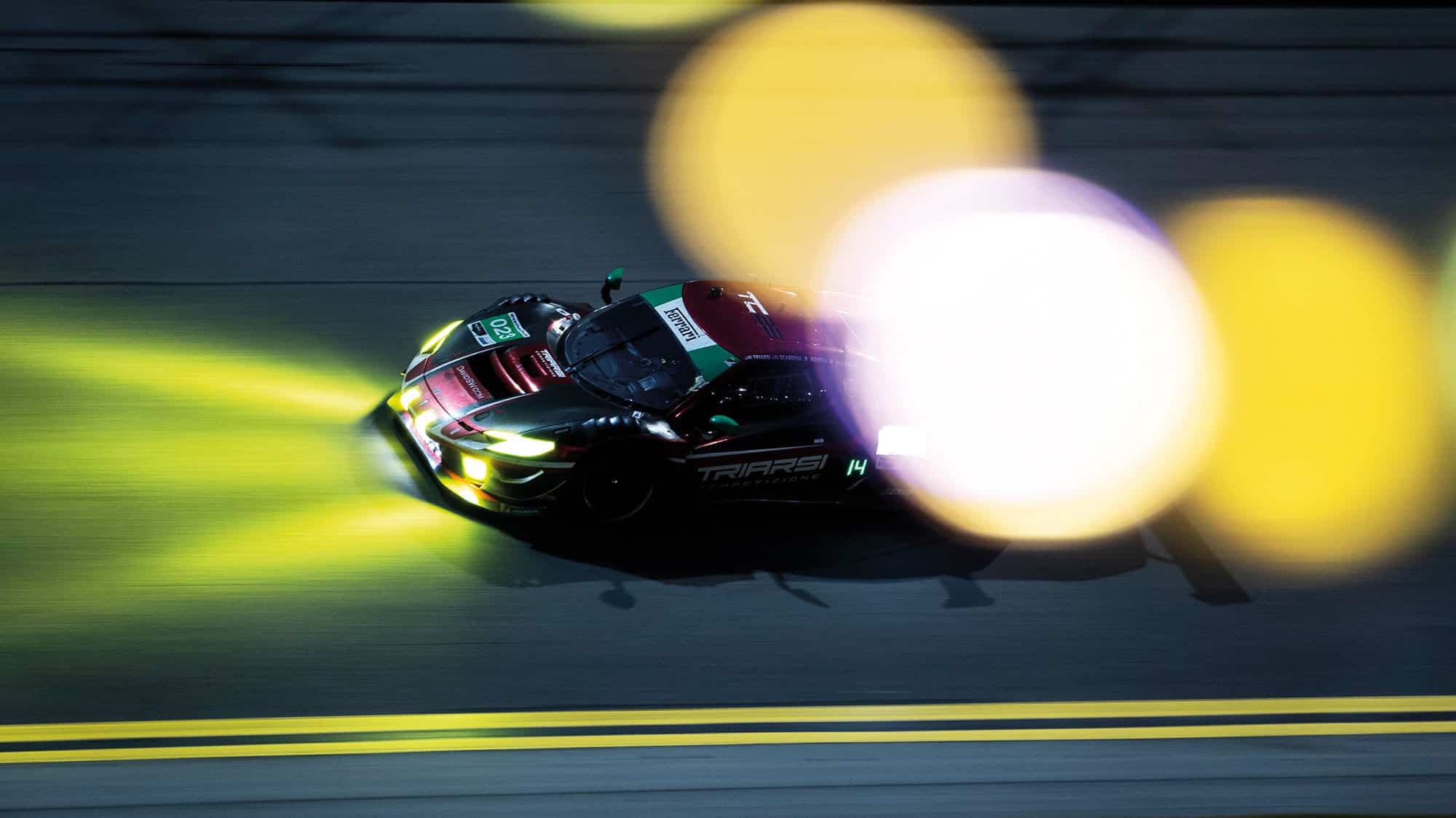
A light show from the Triarsi Ferrari 296 GT3.
Getty Images
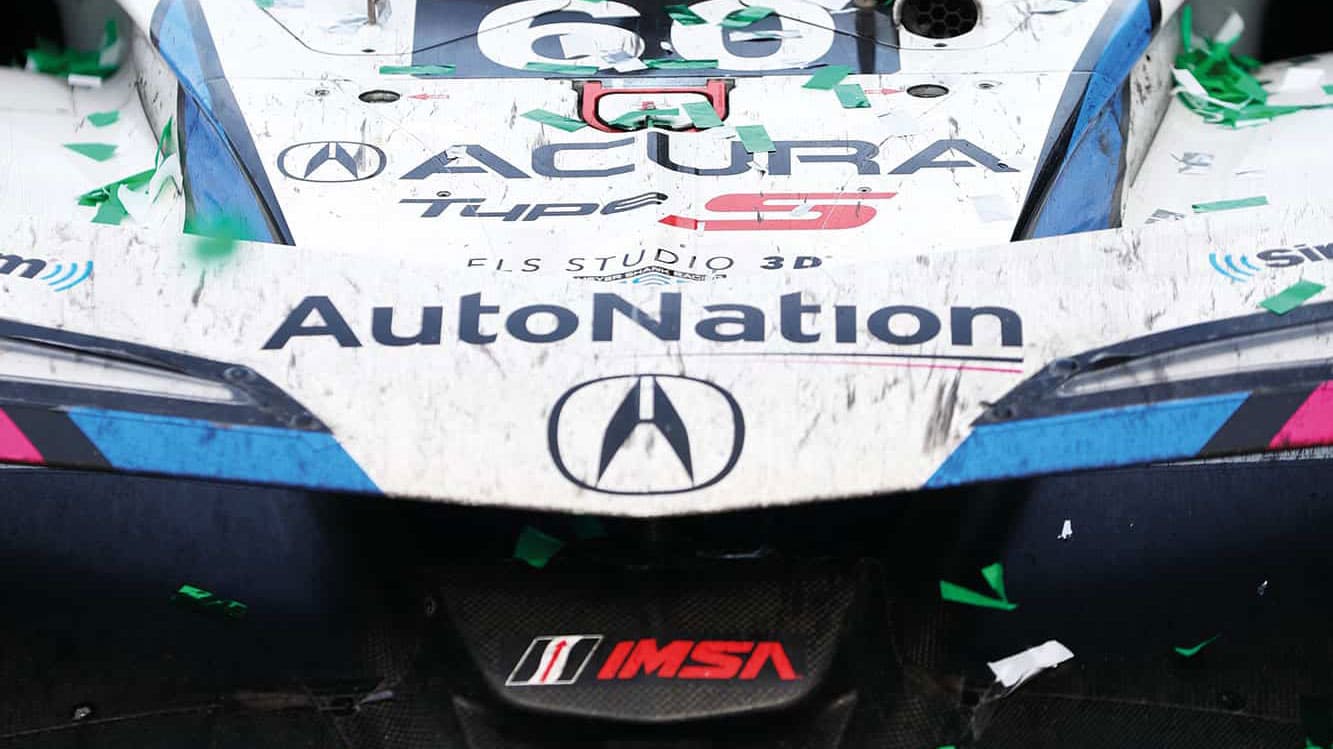
A dream debut for the Acura ARX-06
IMSA
